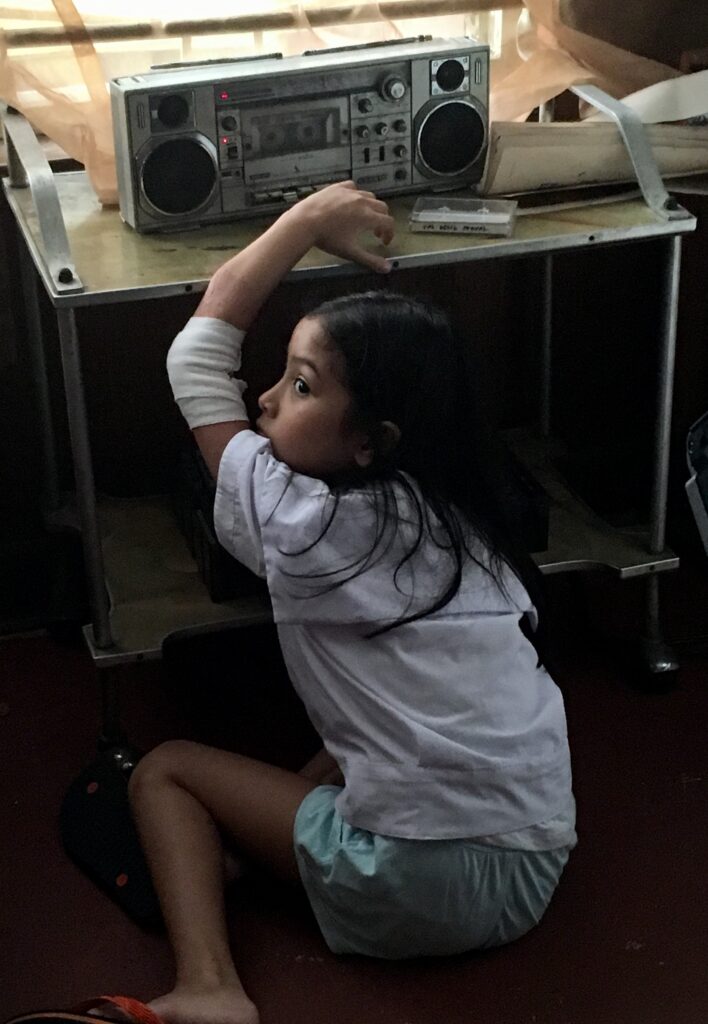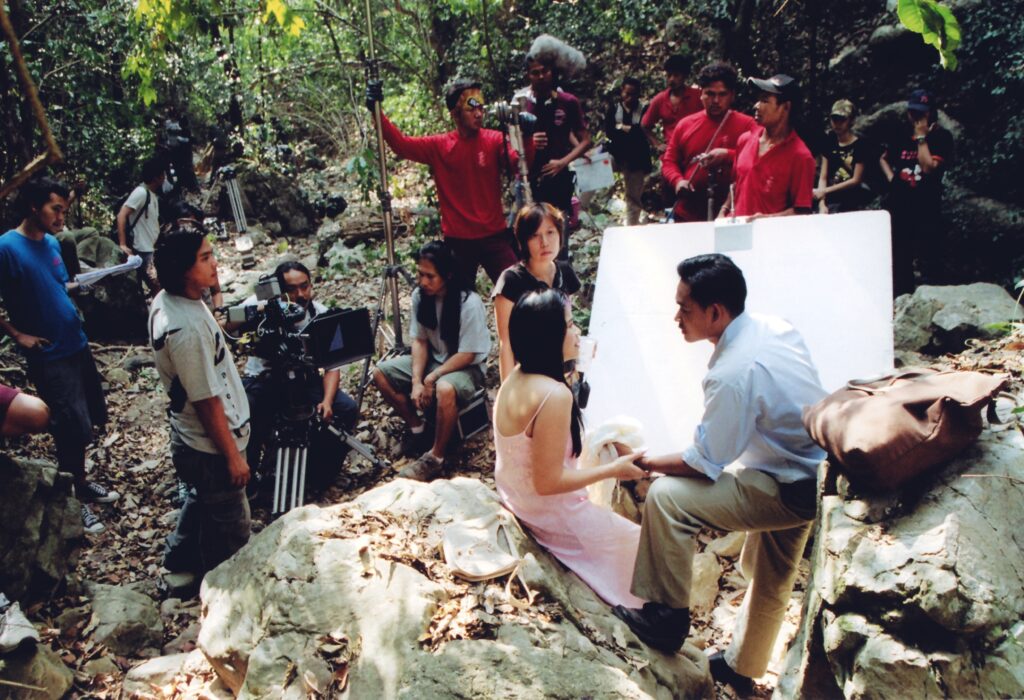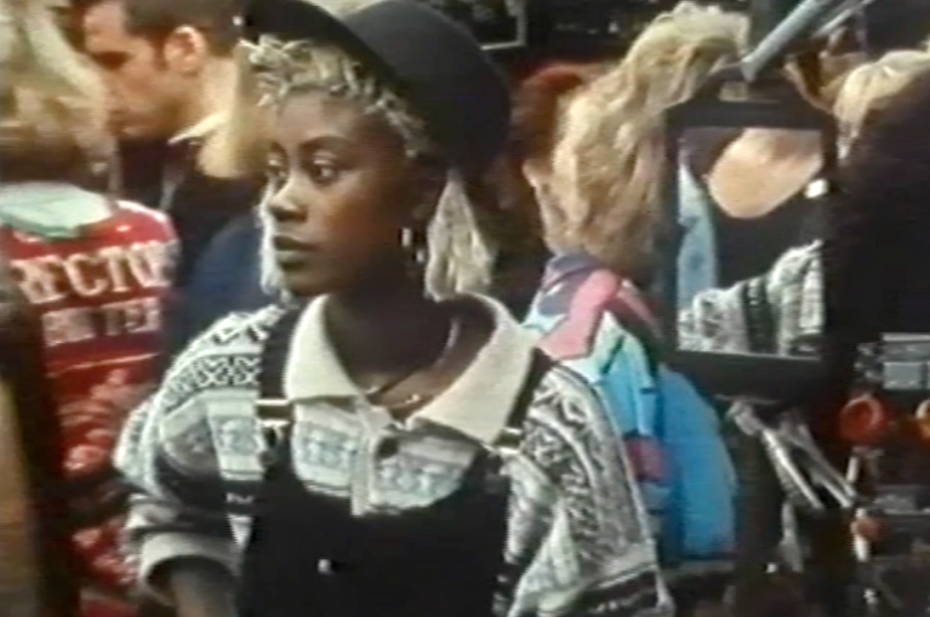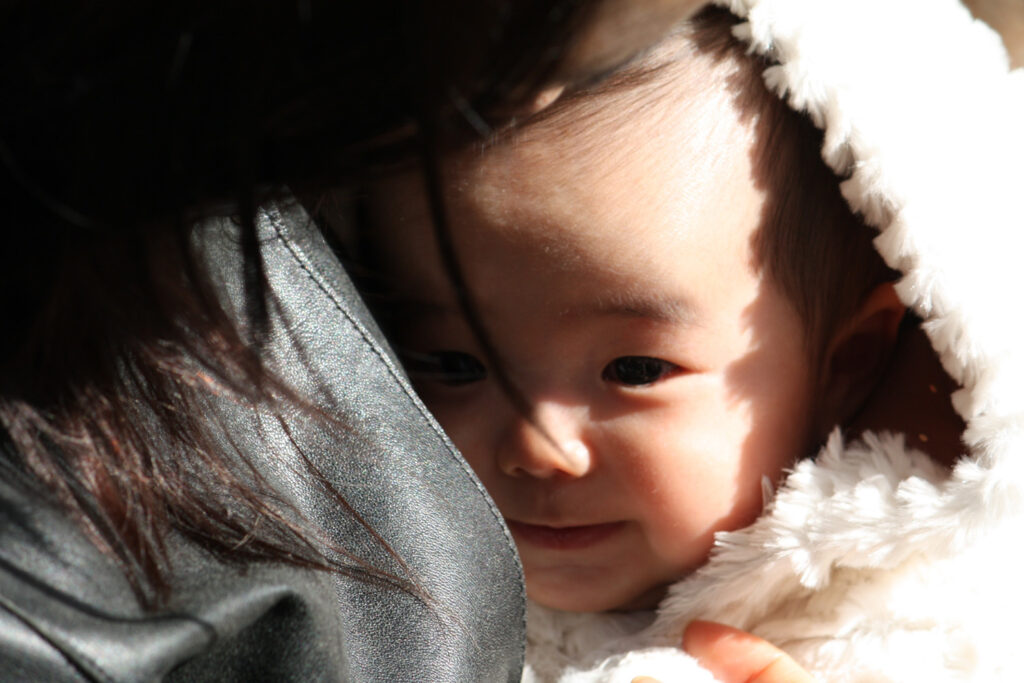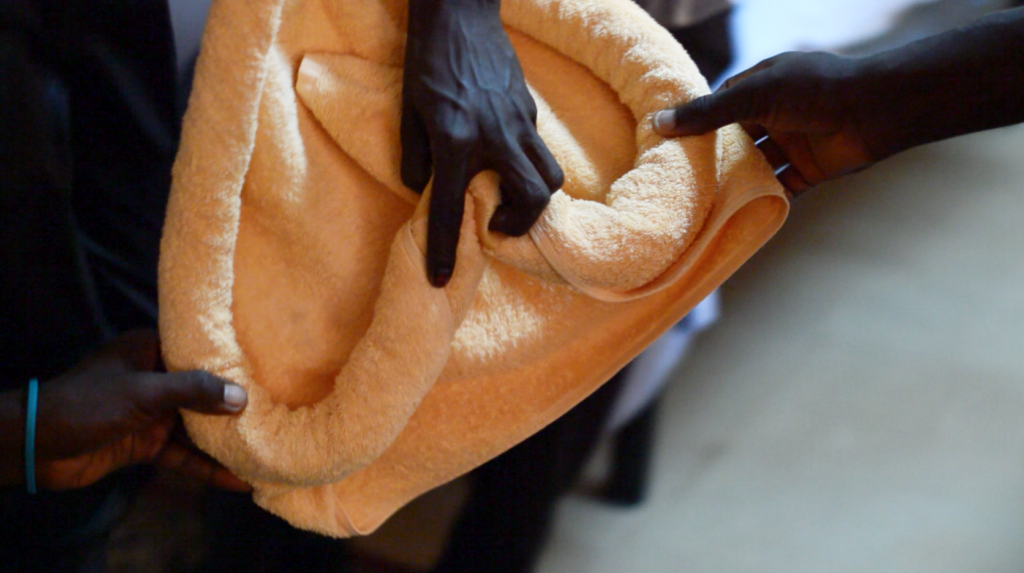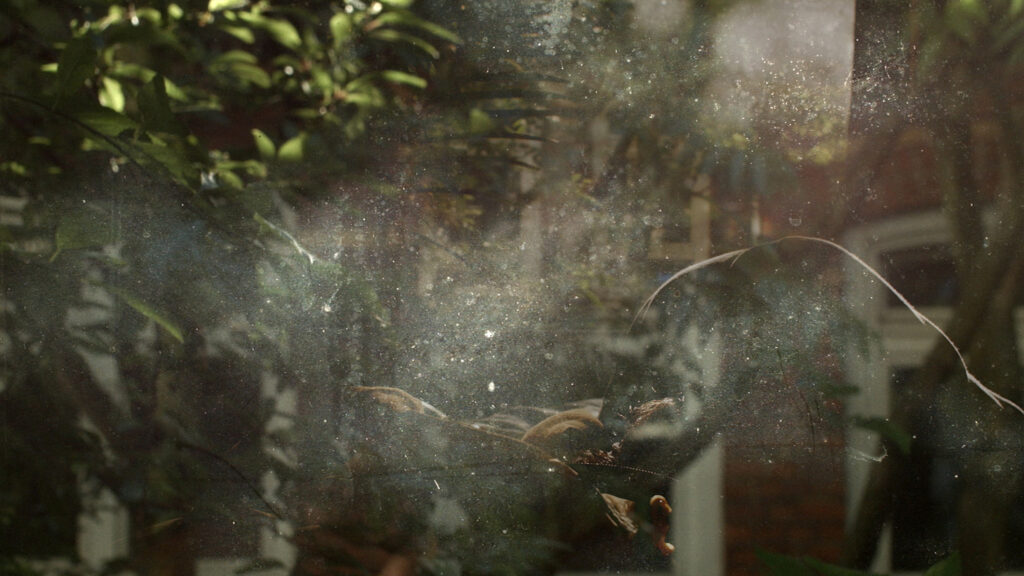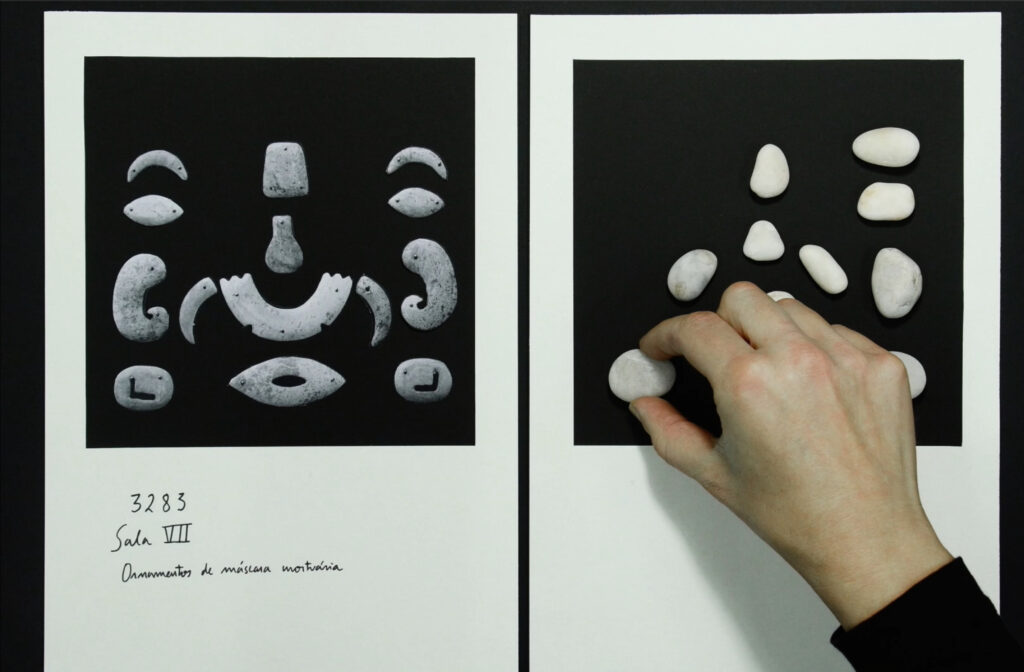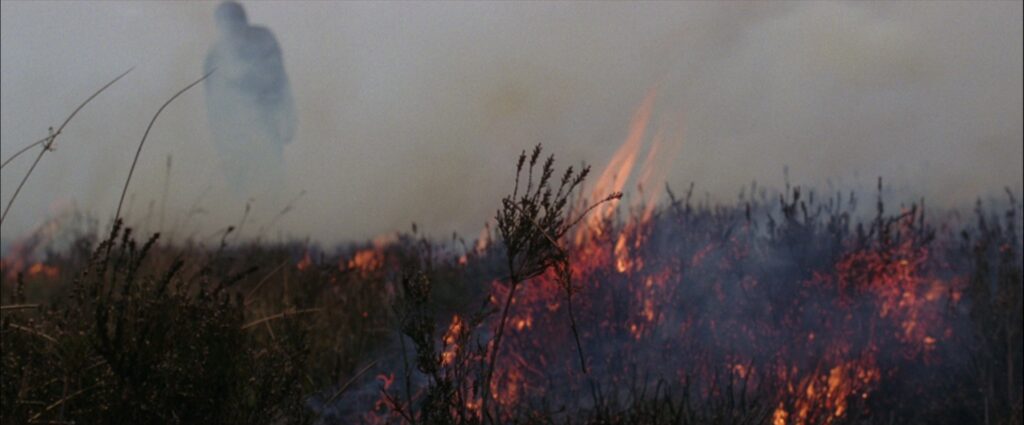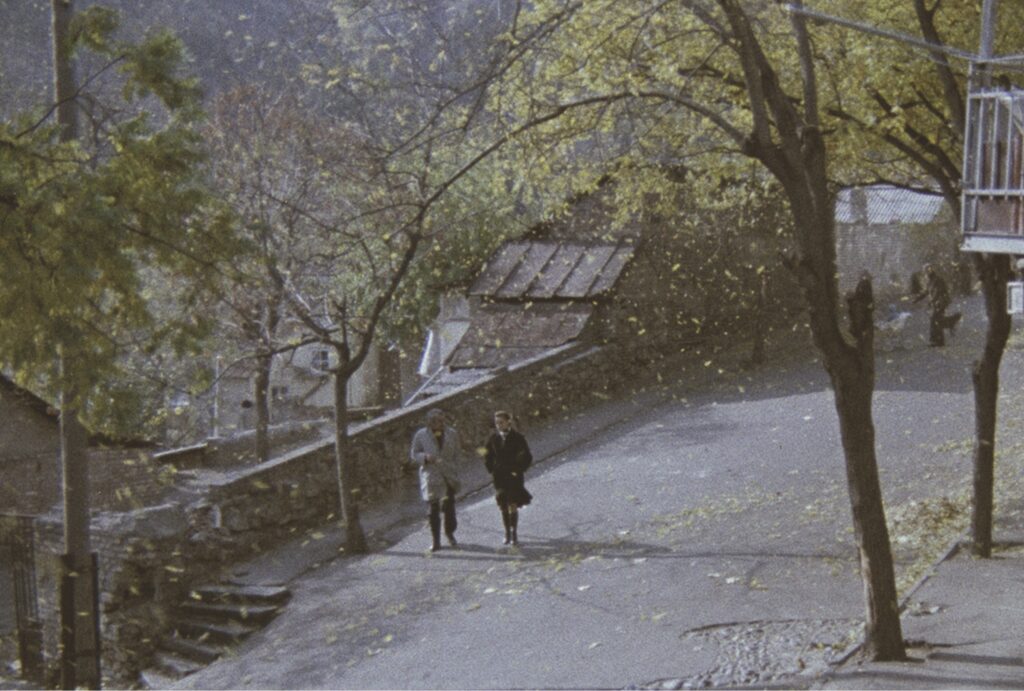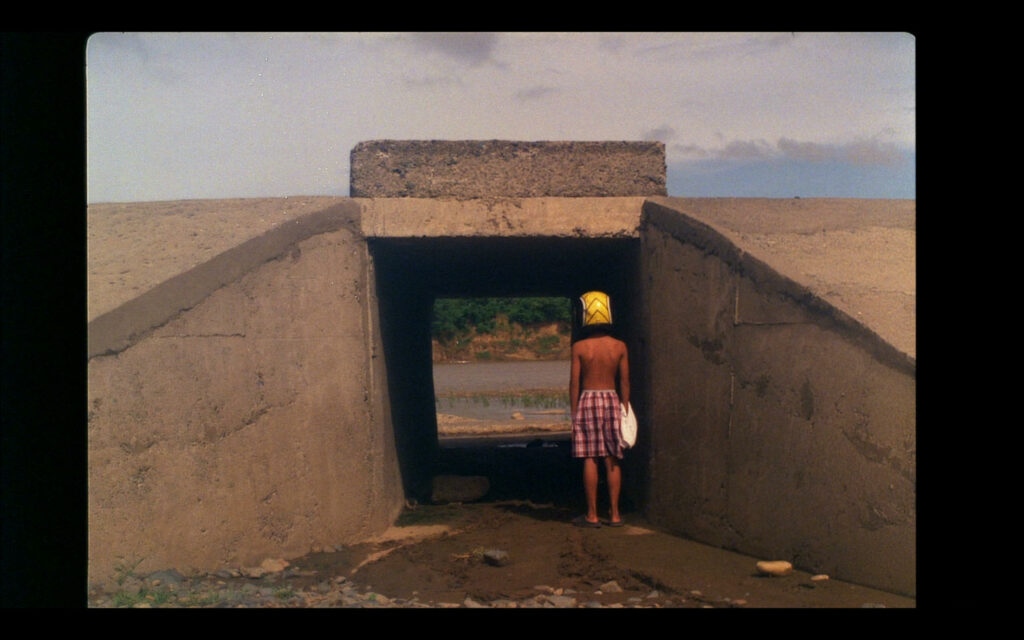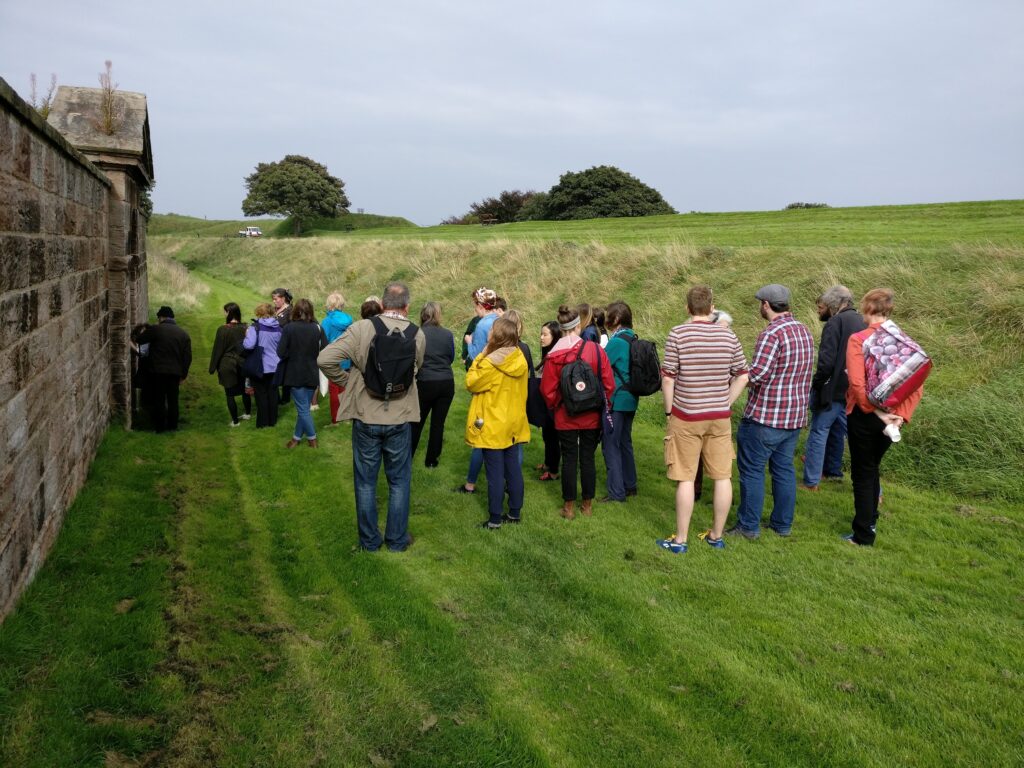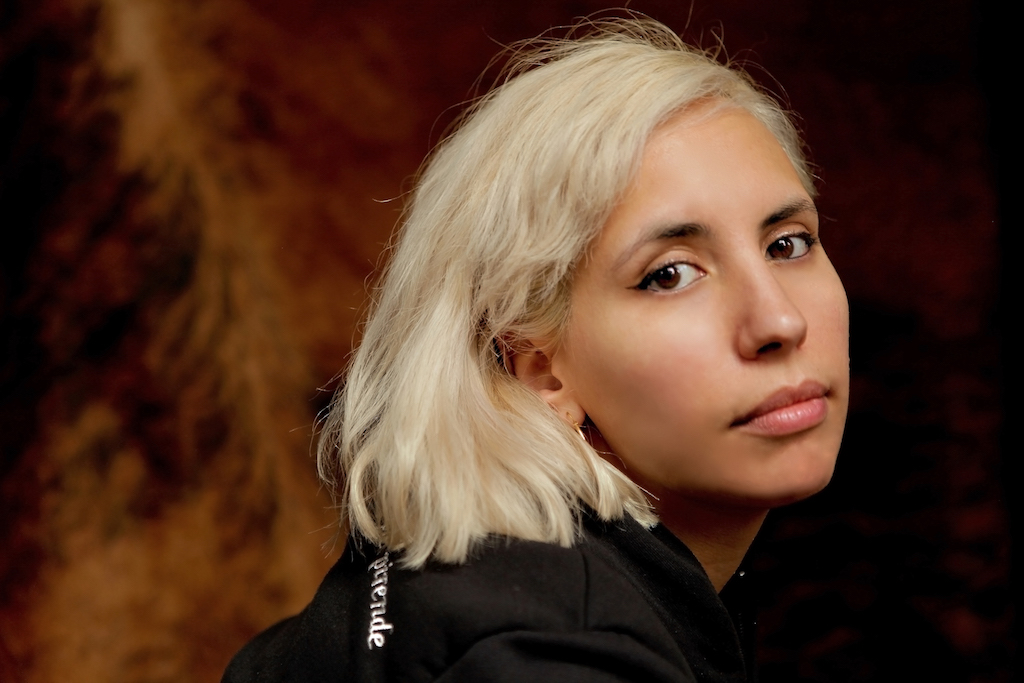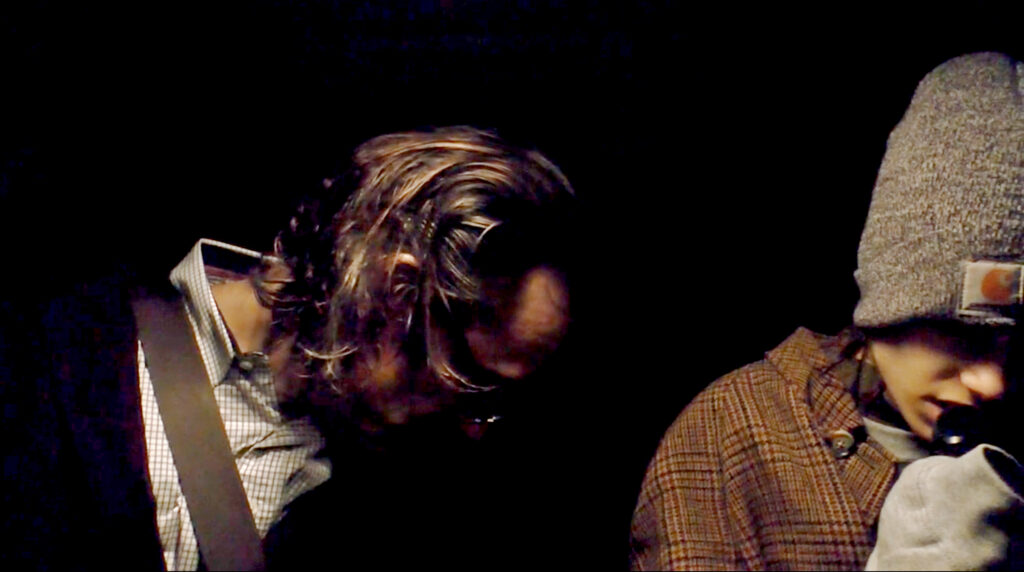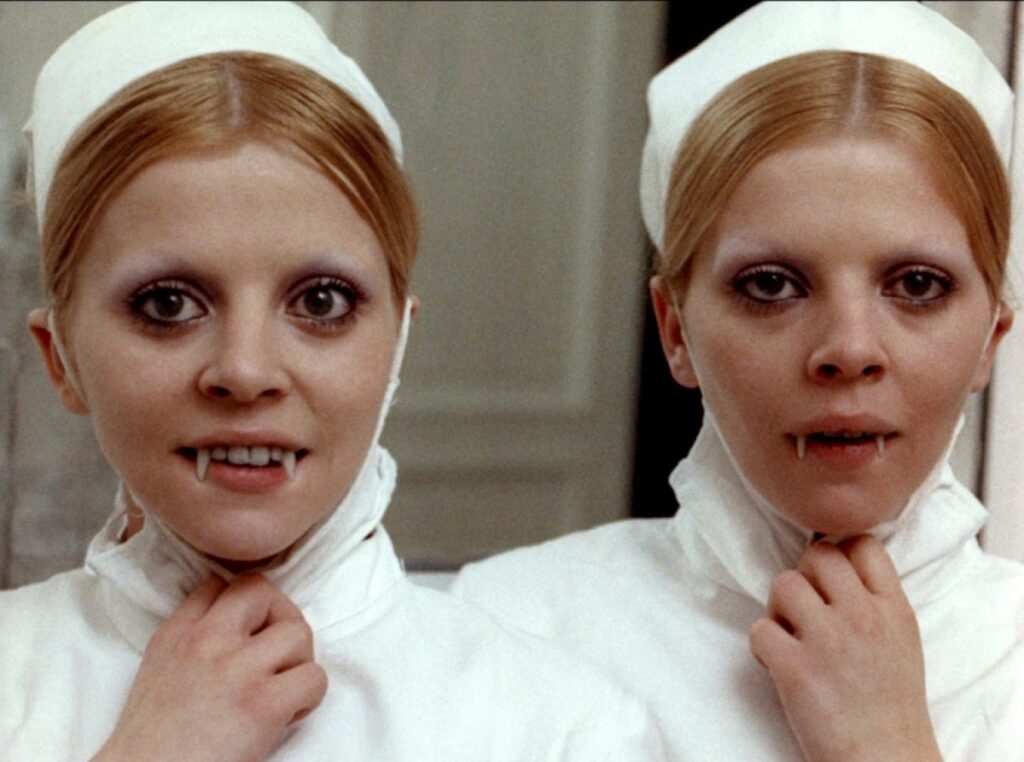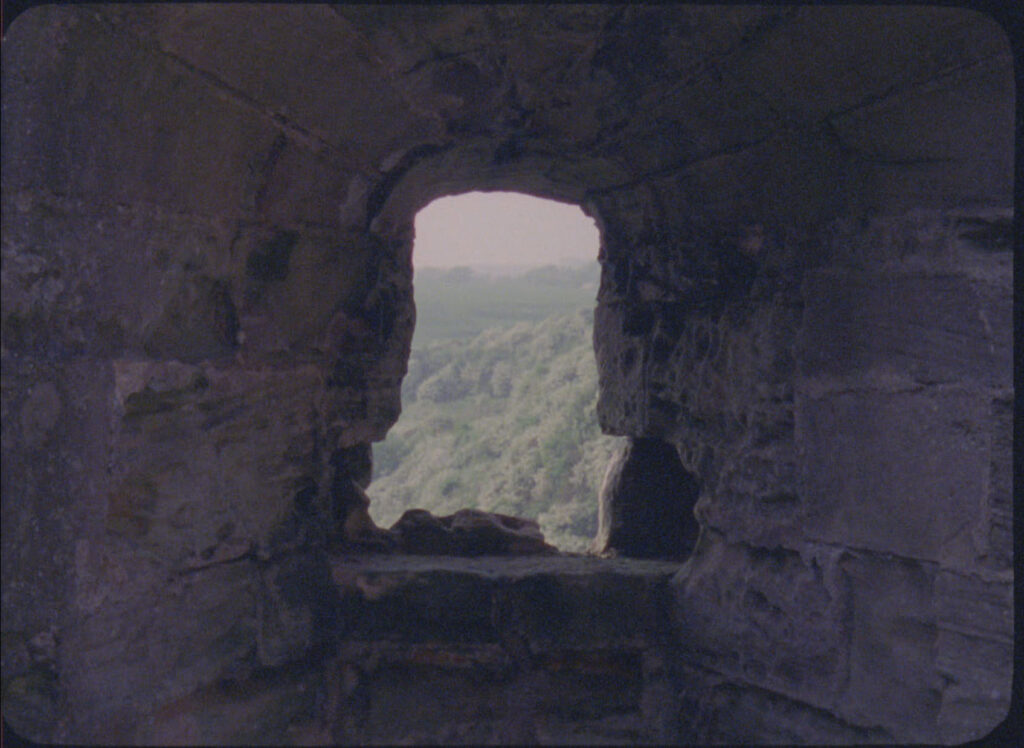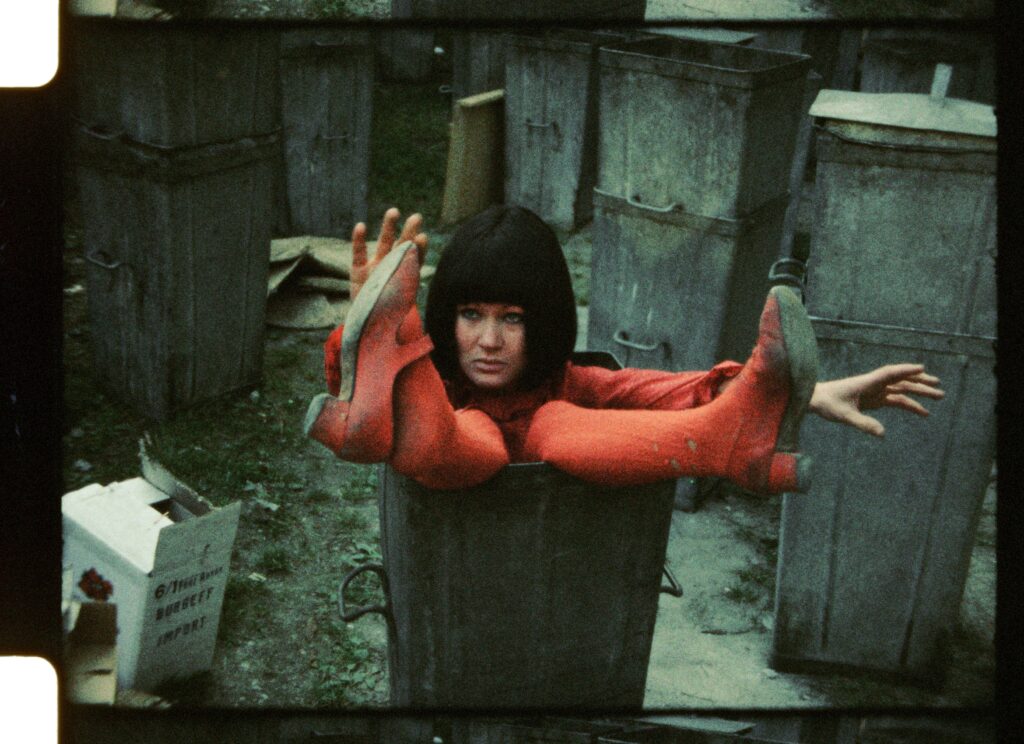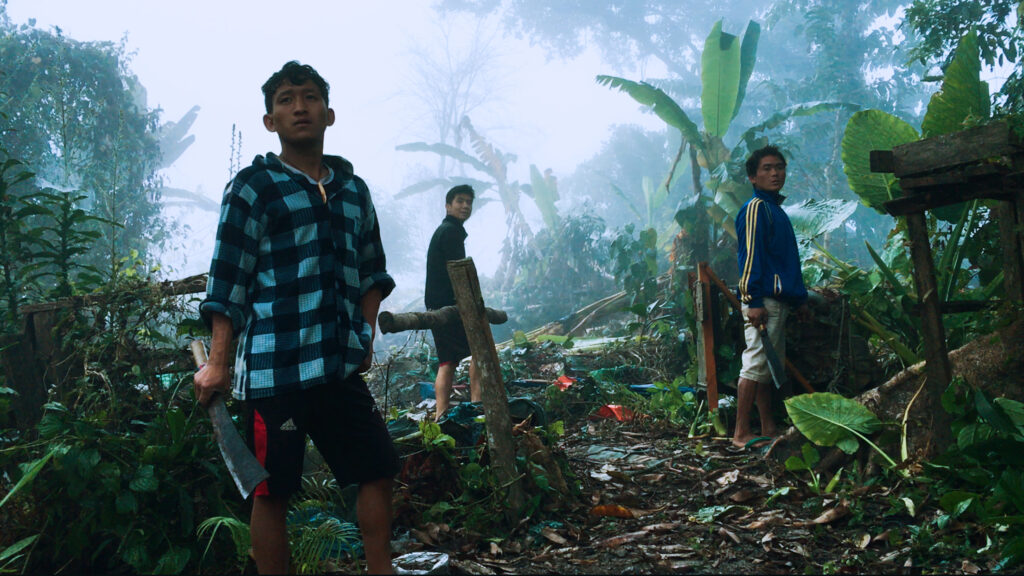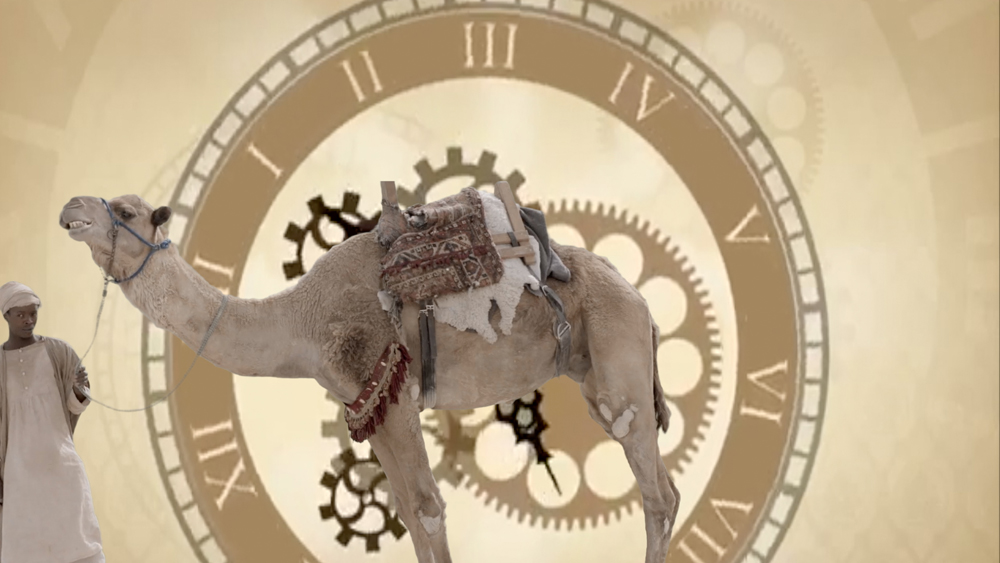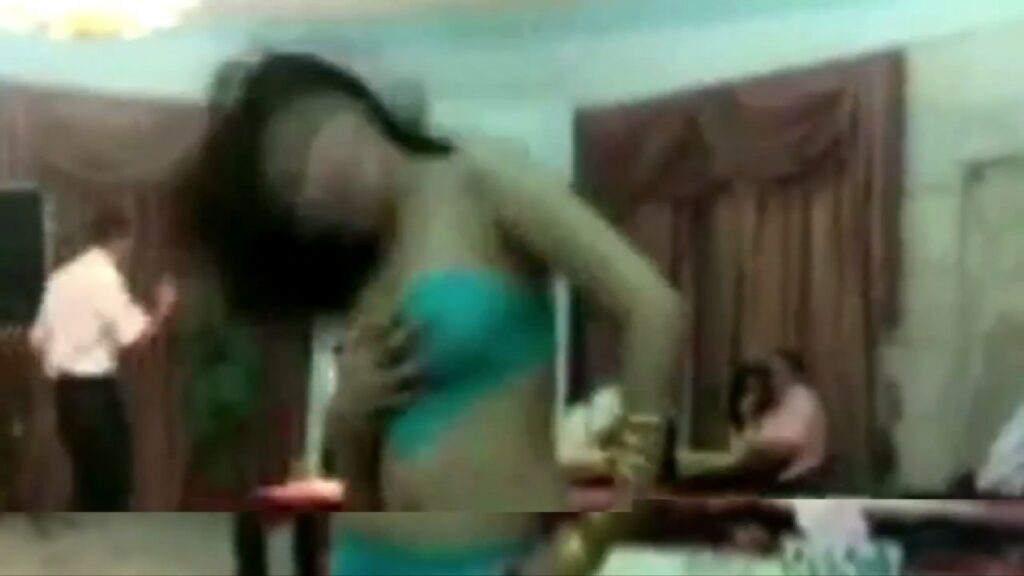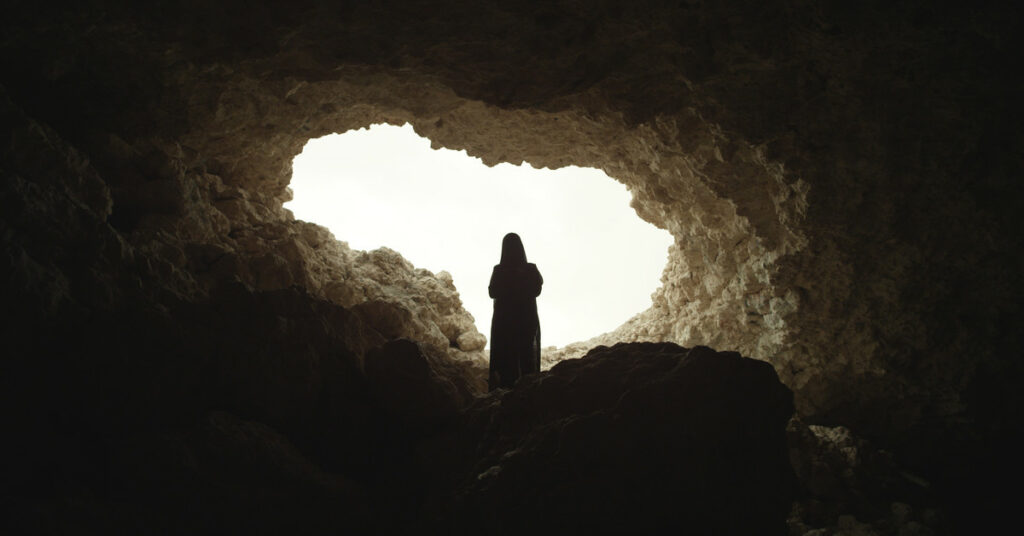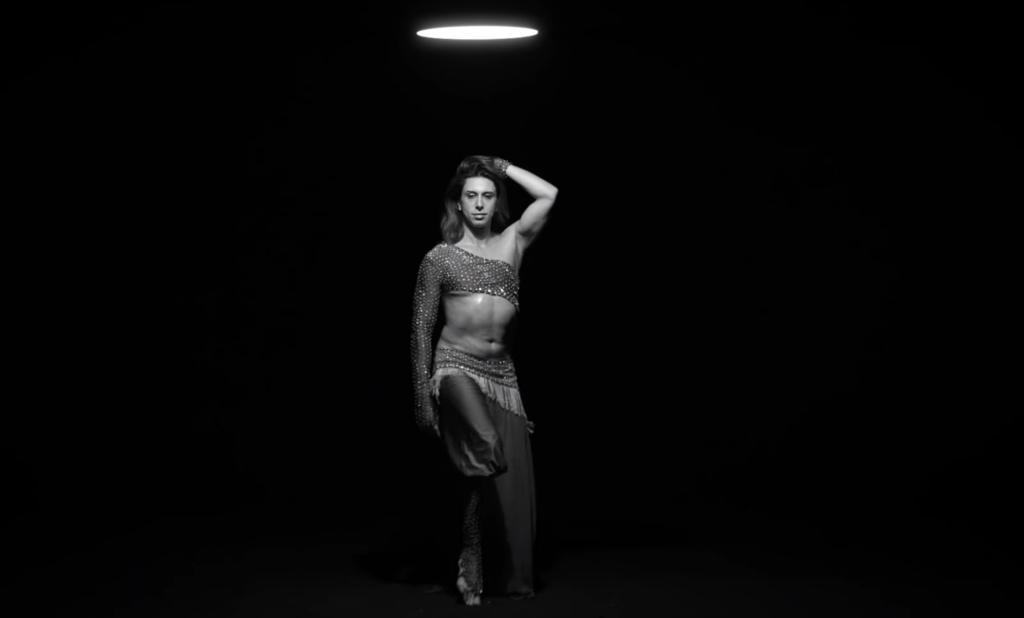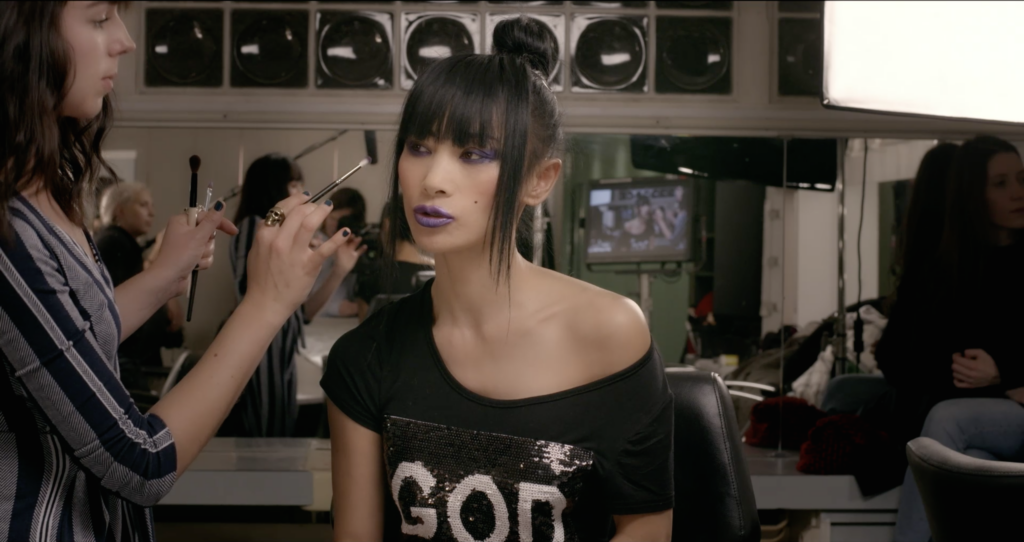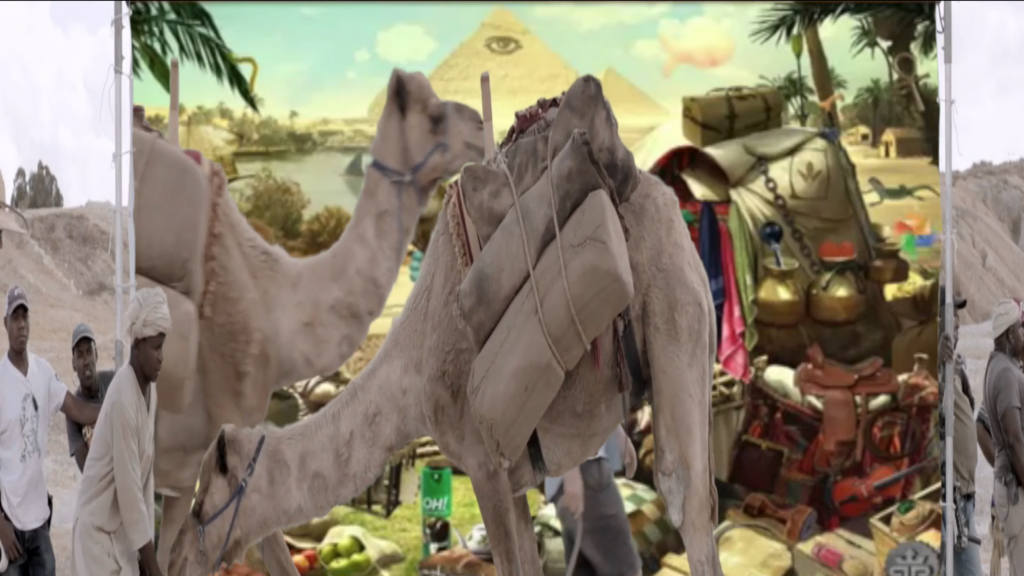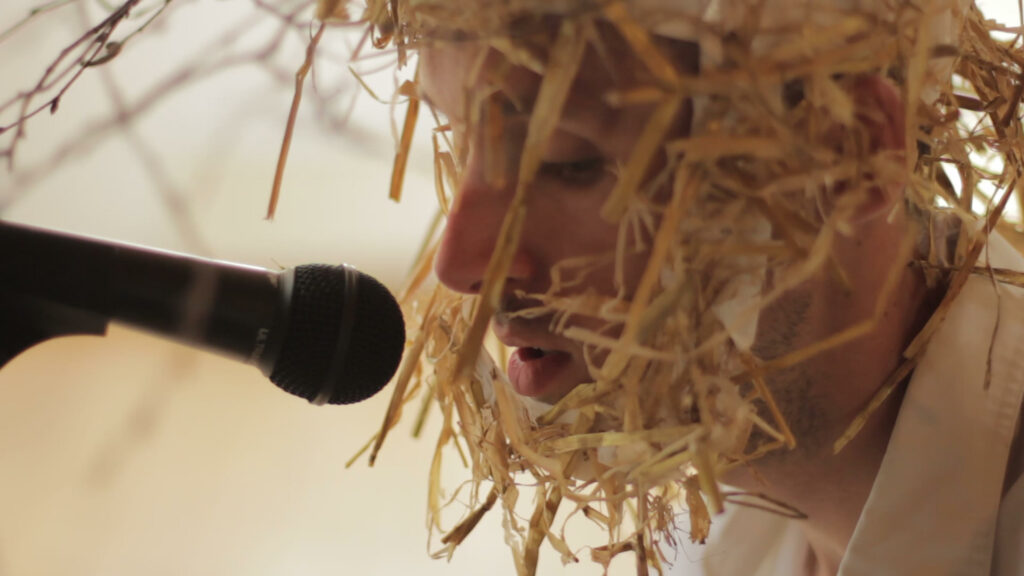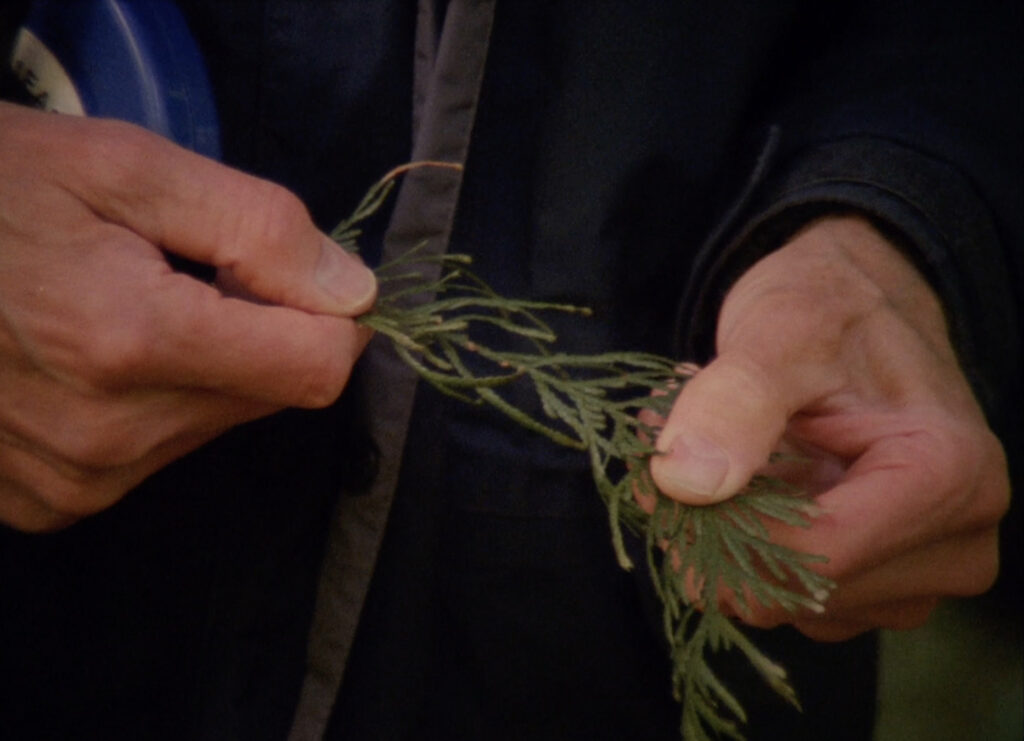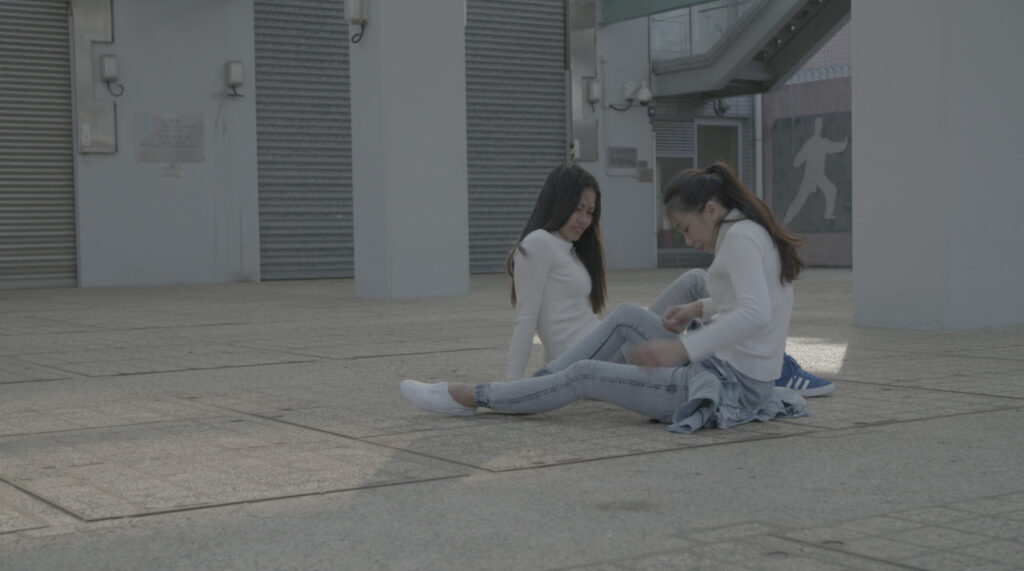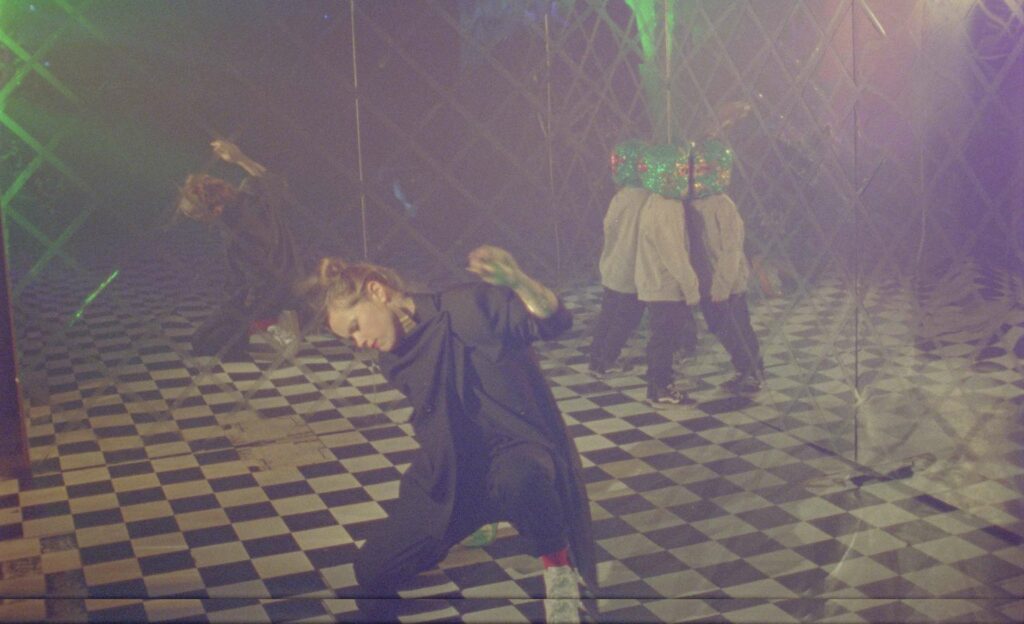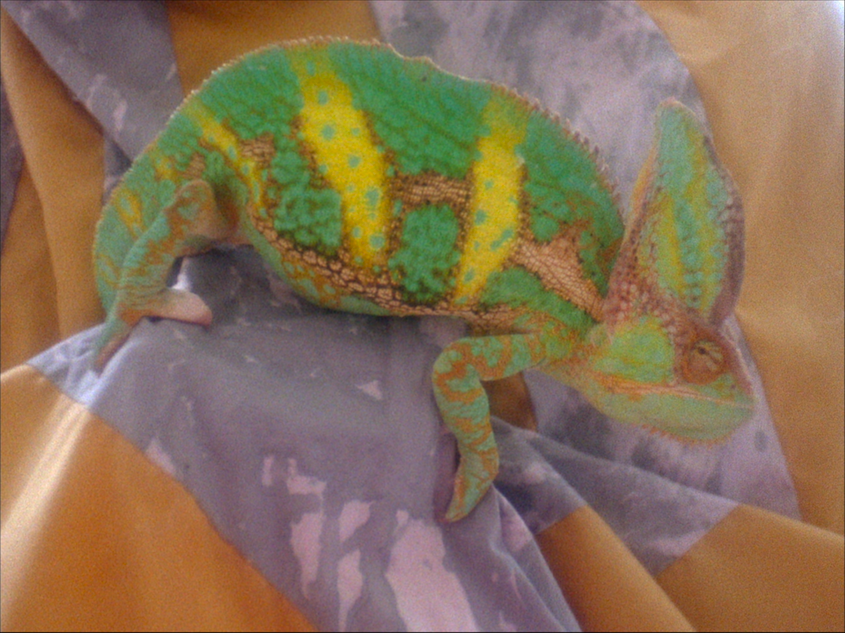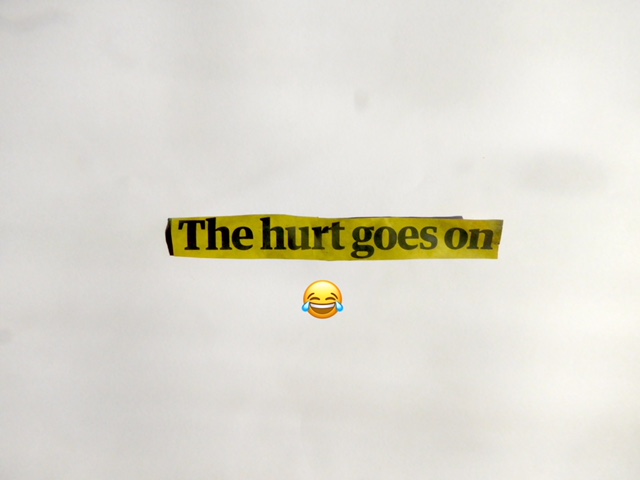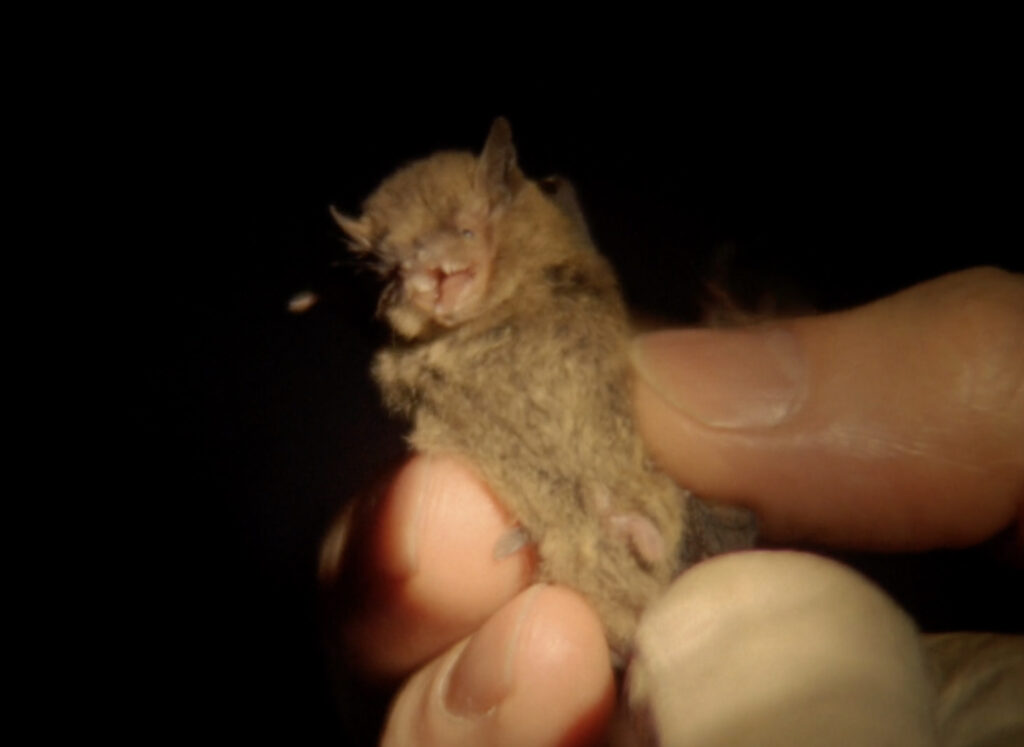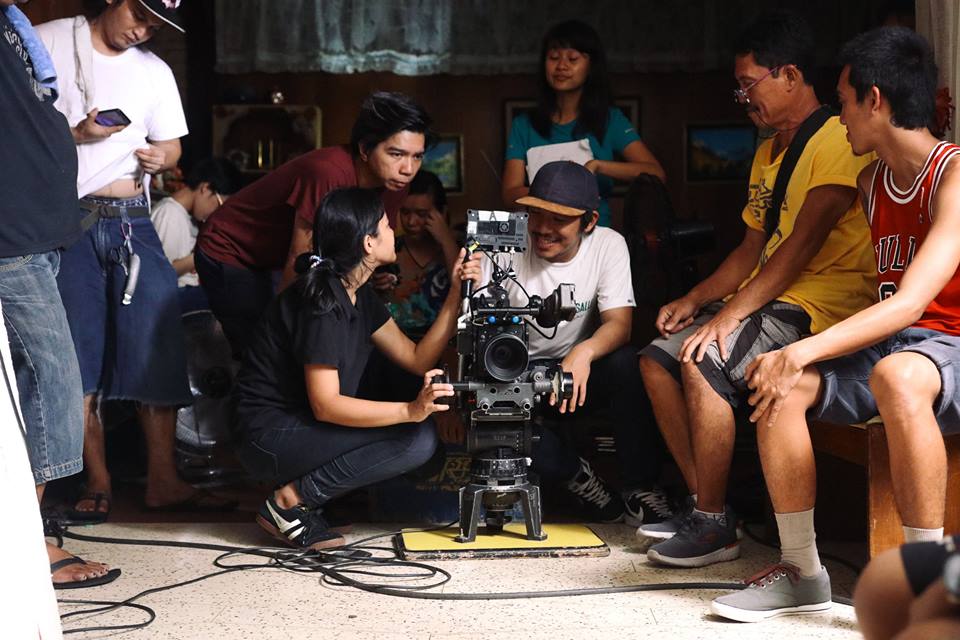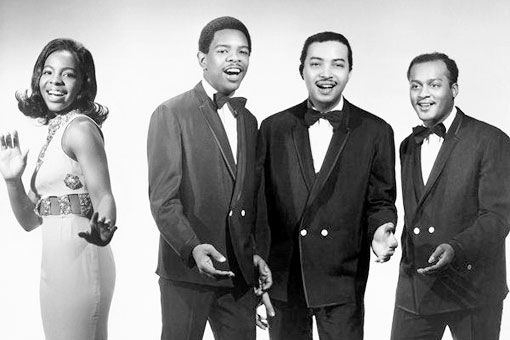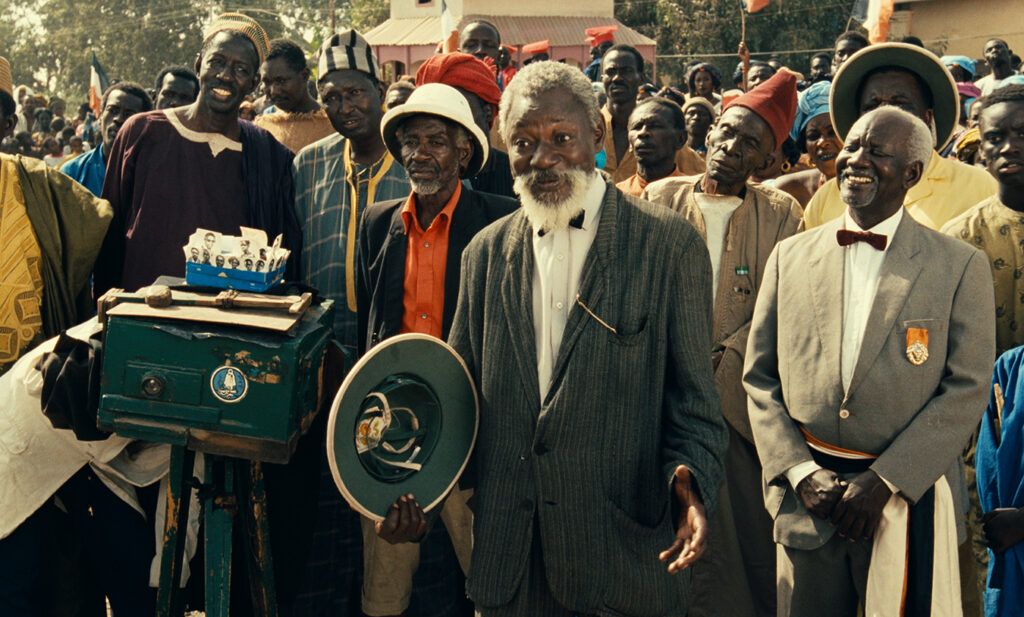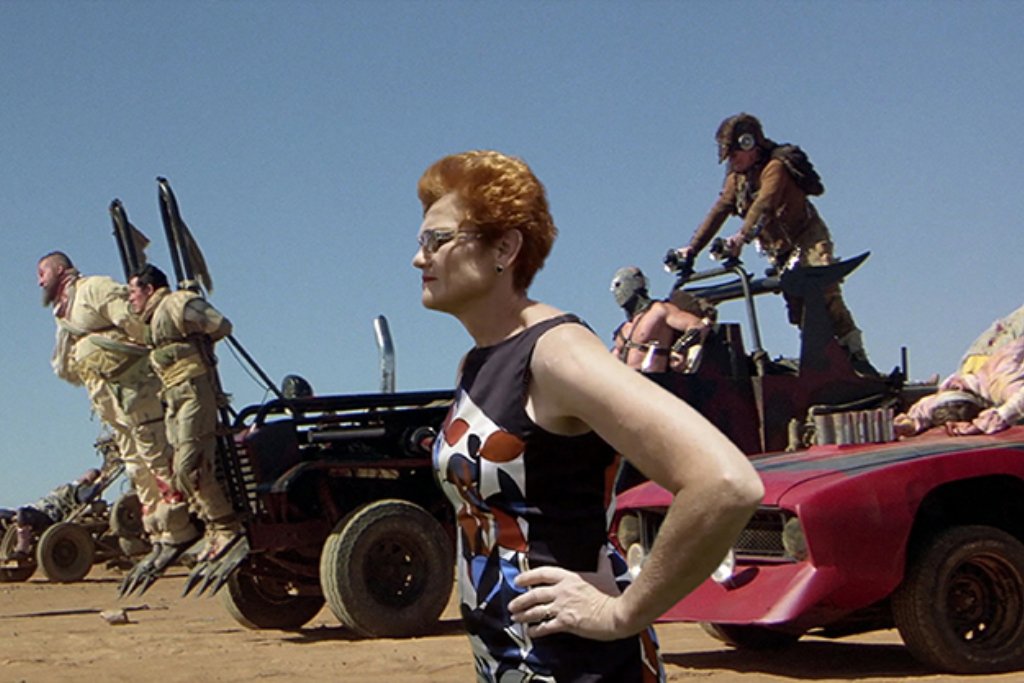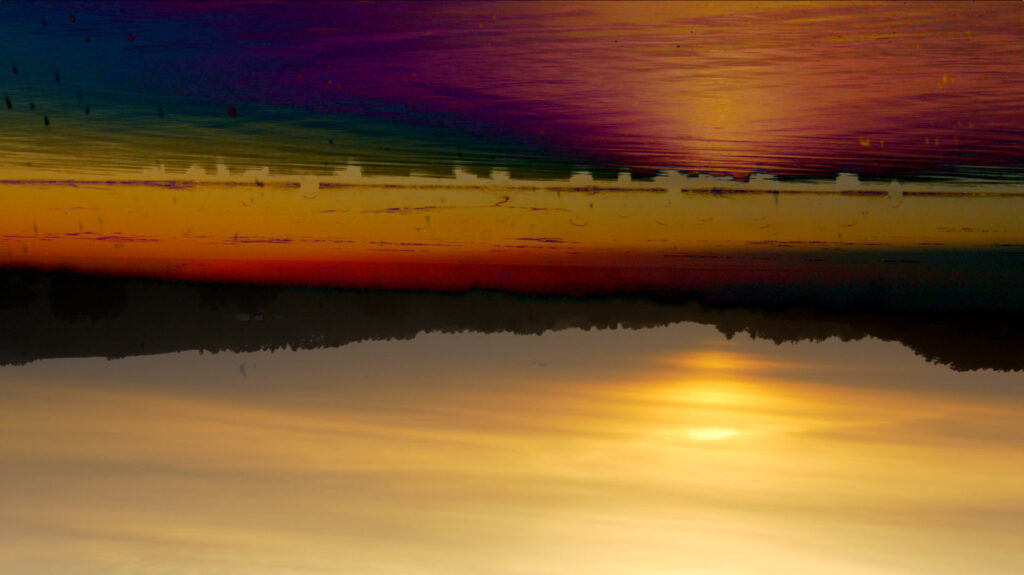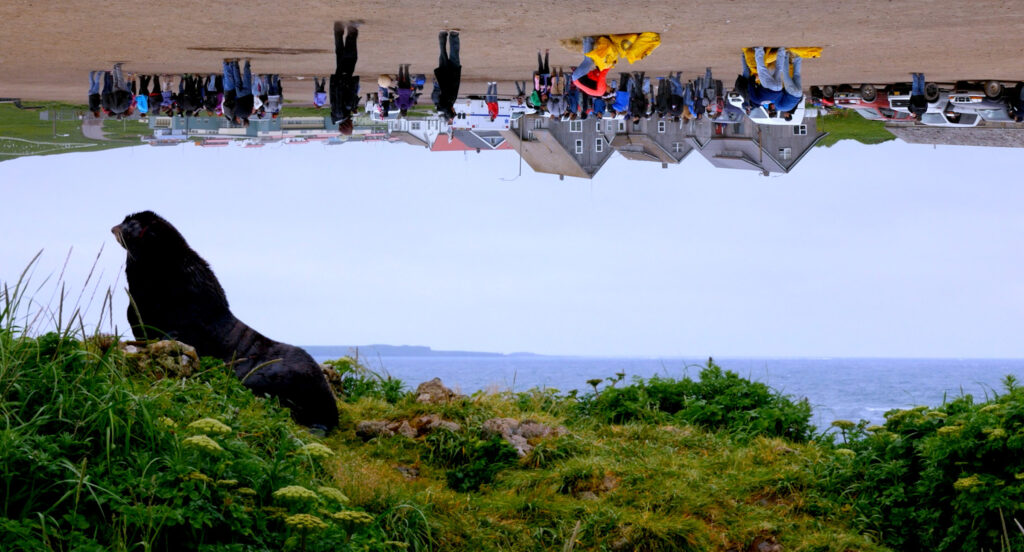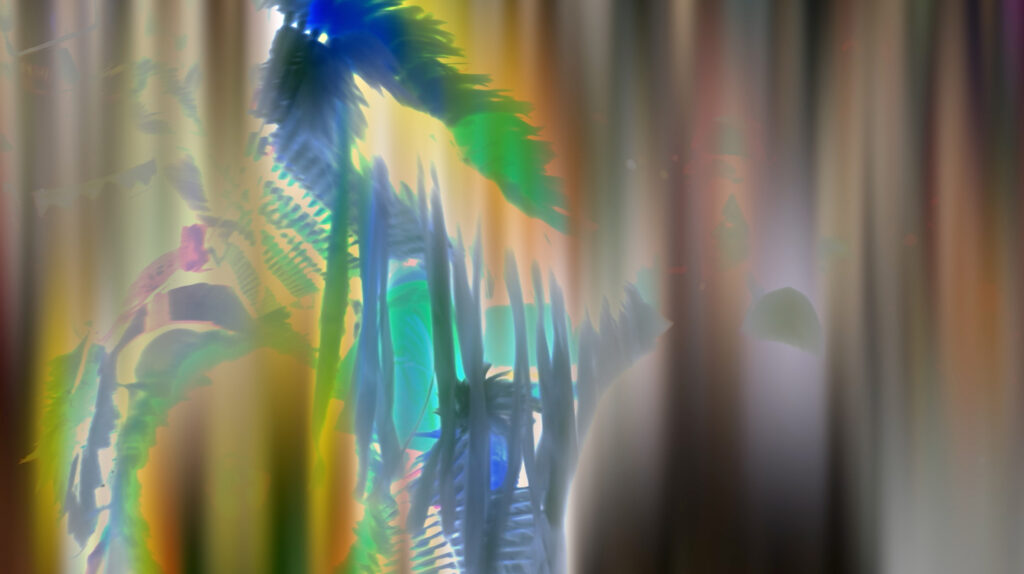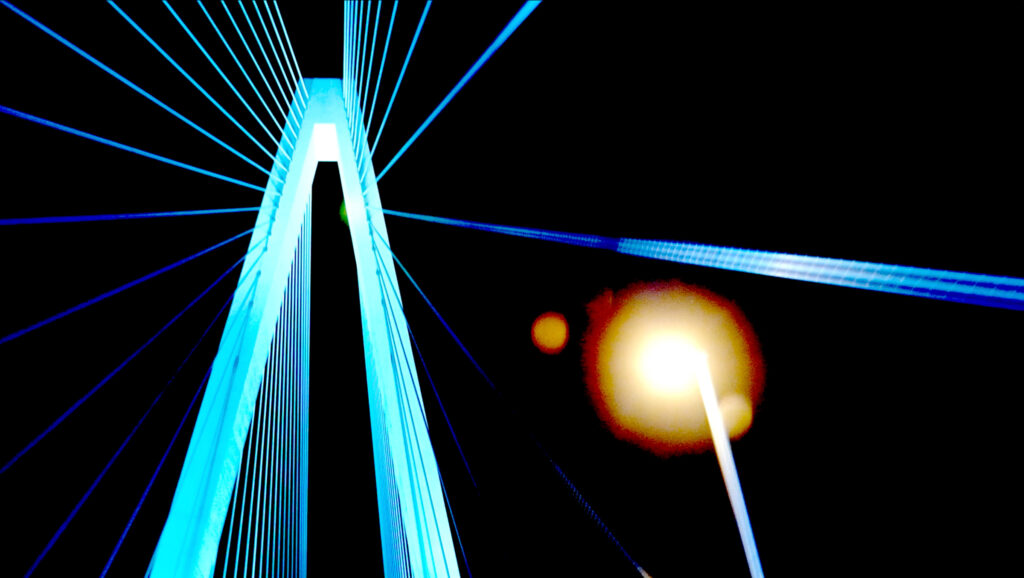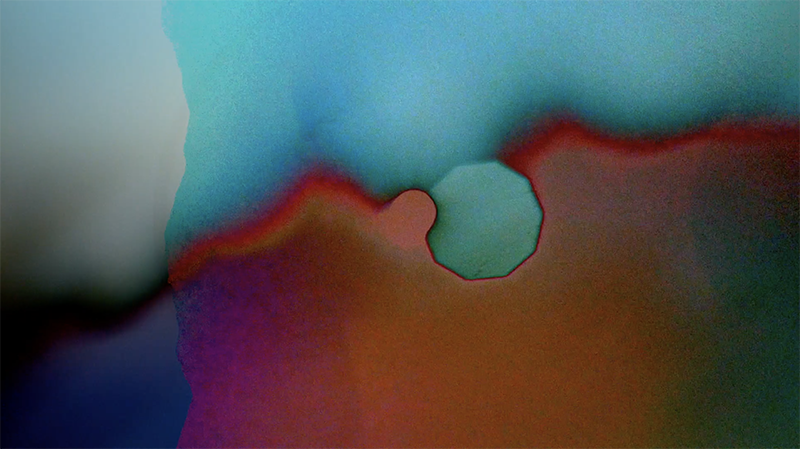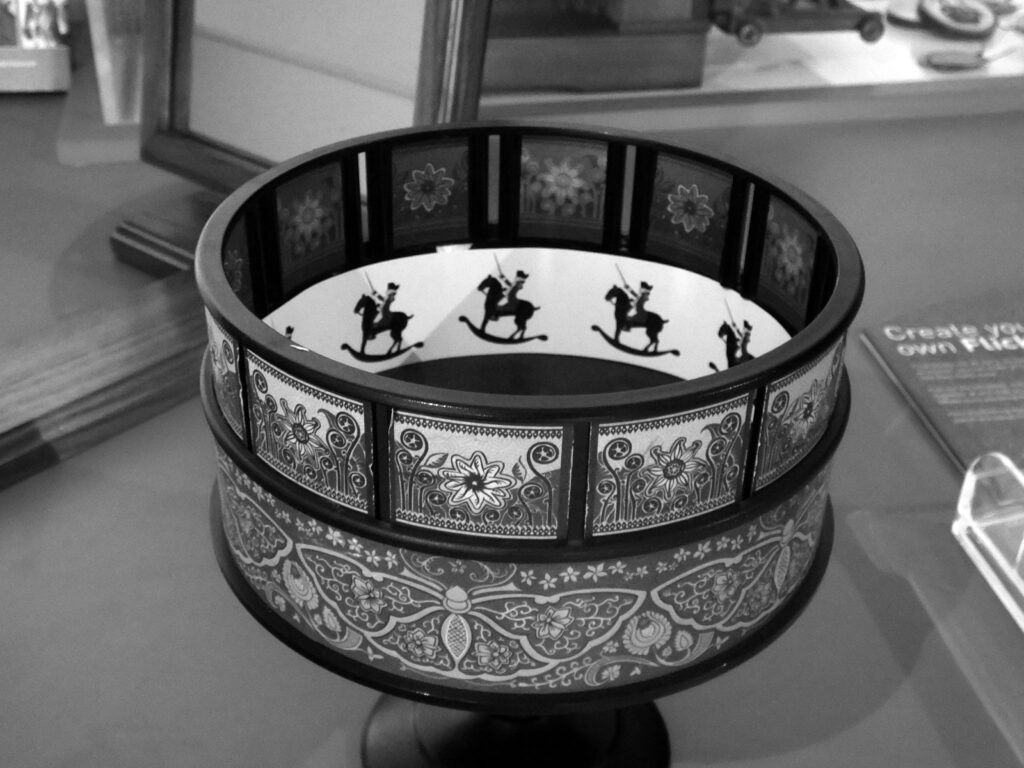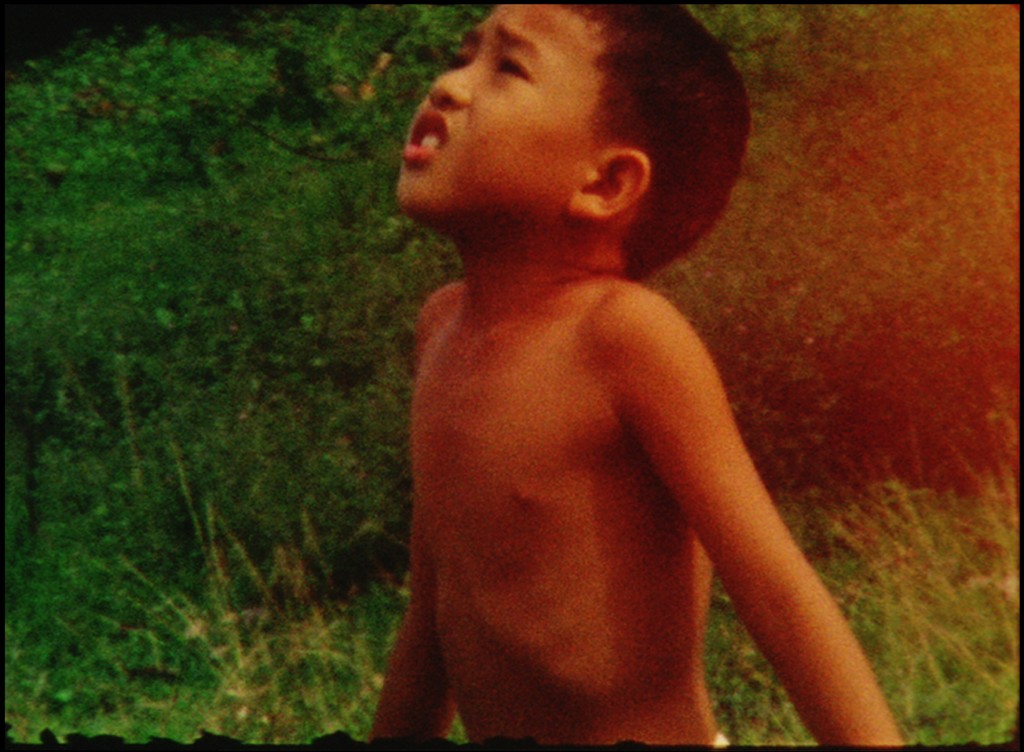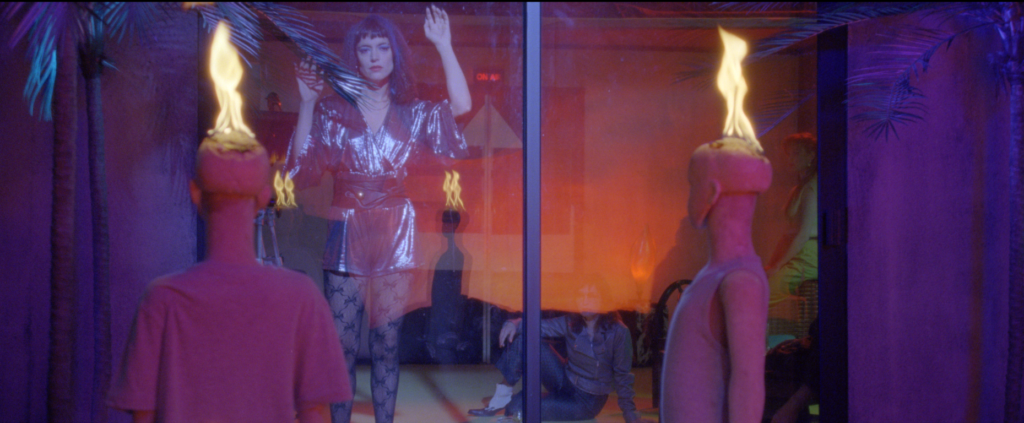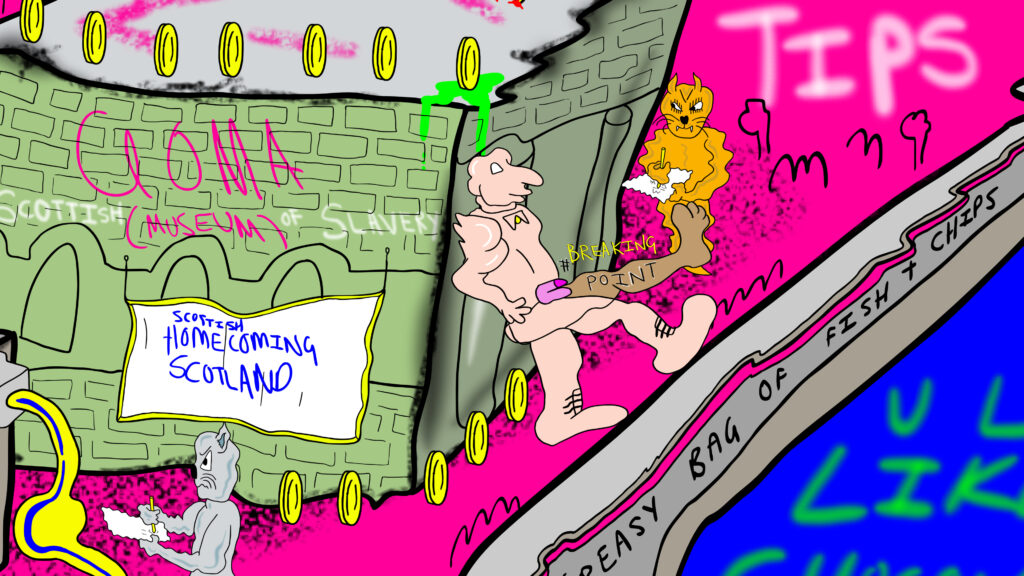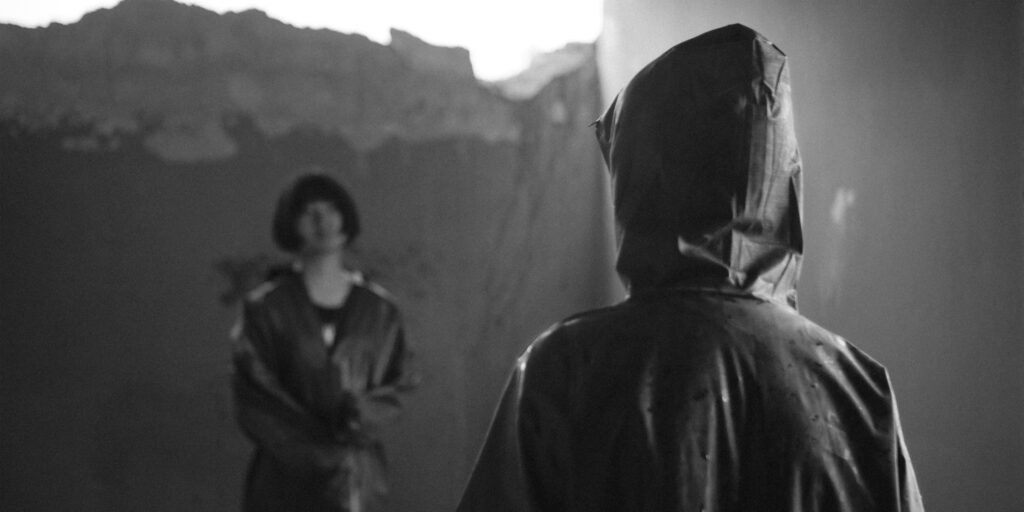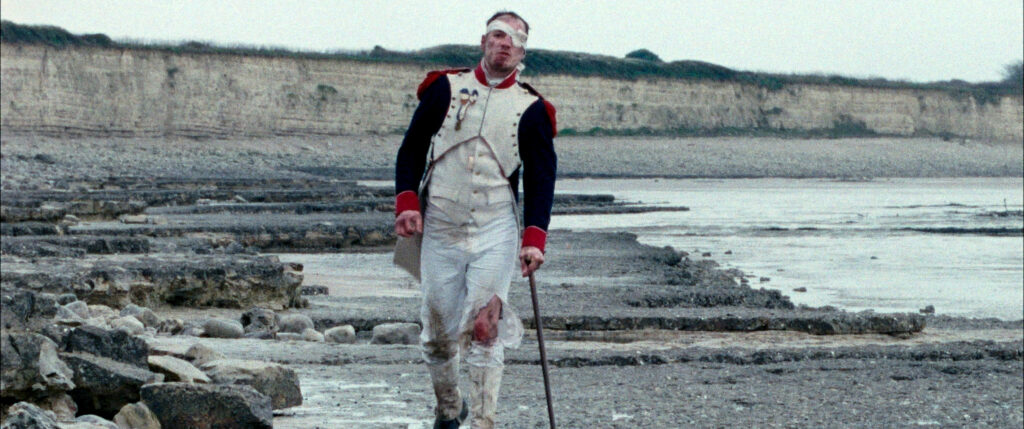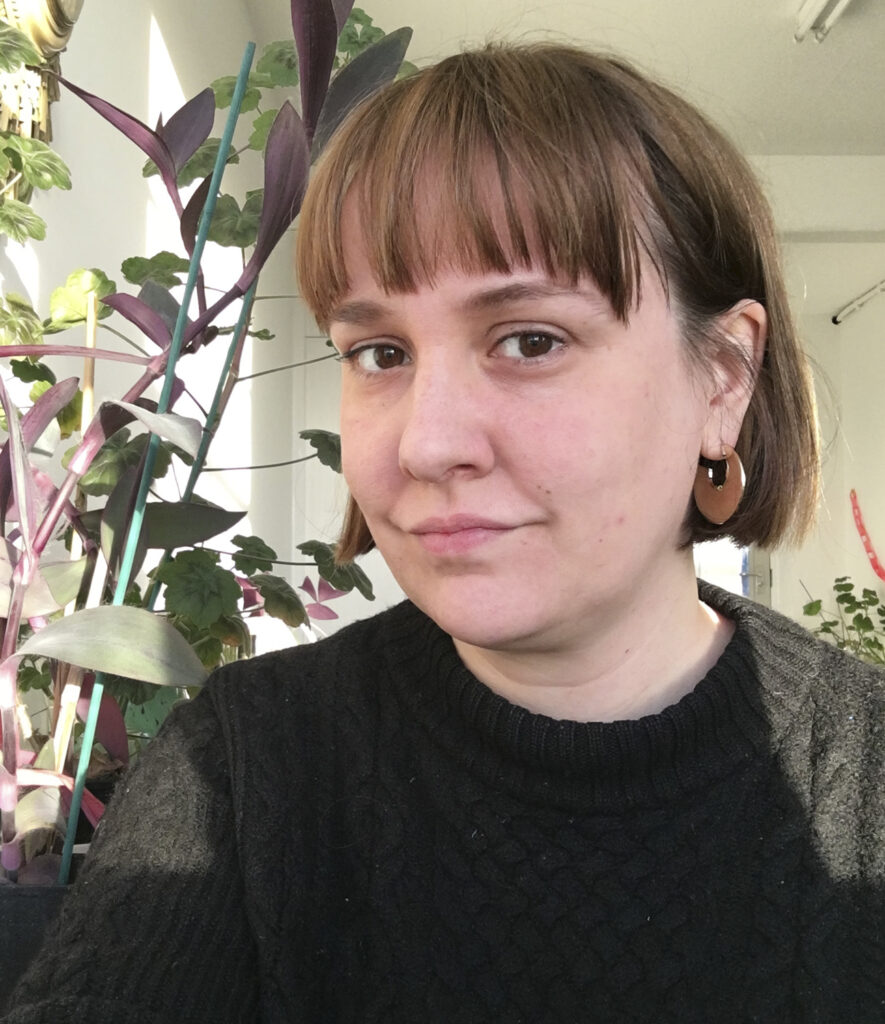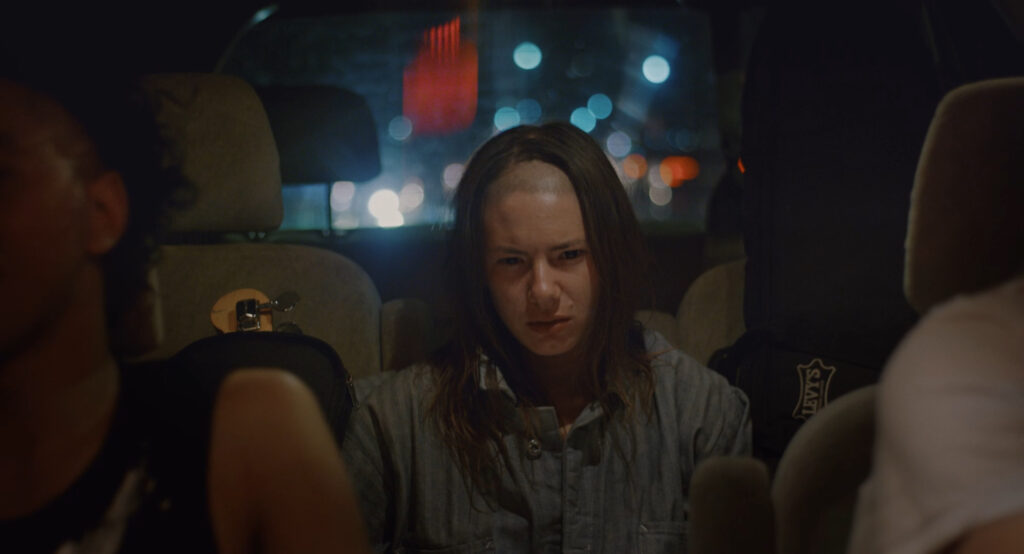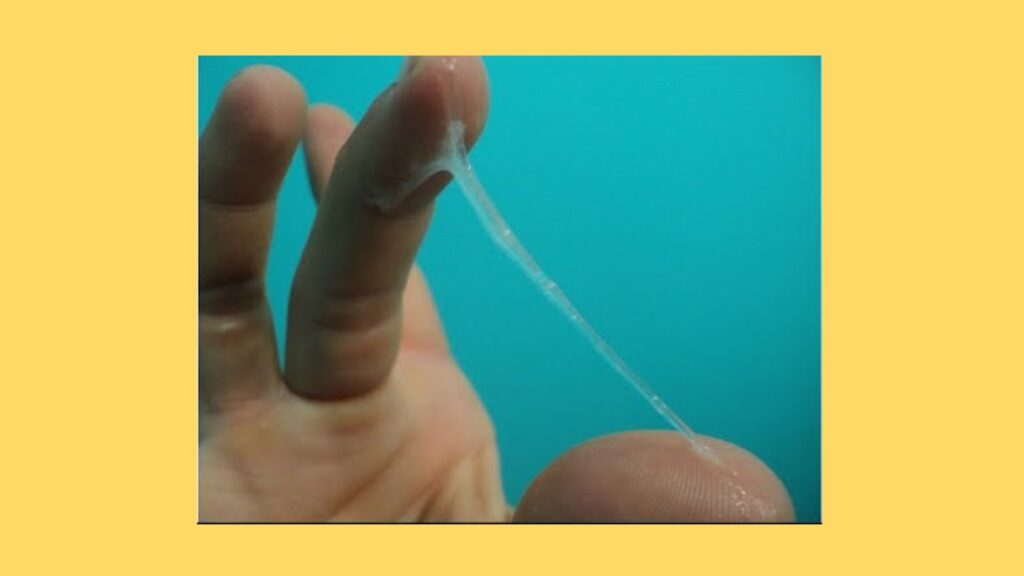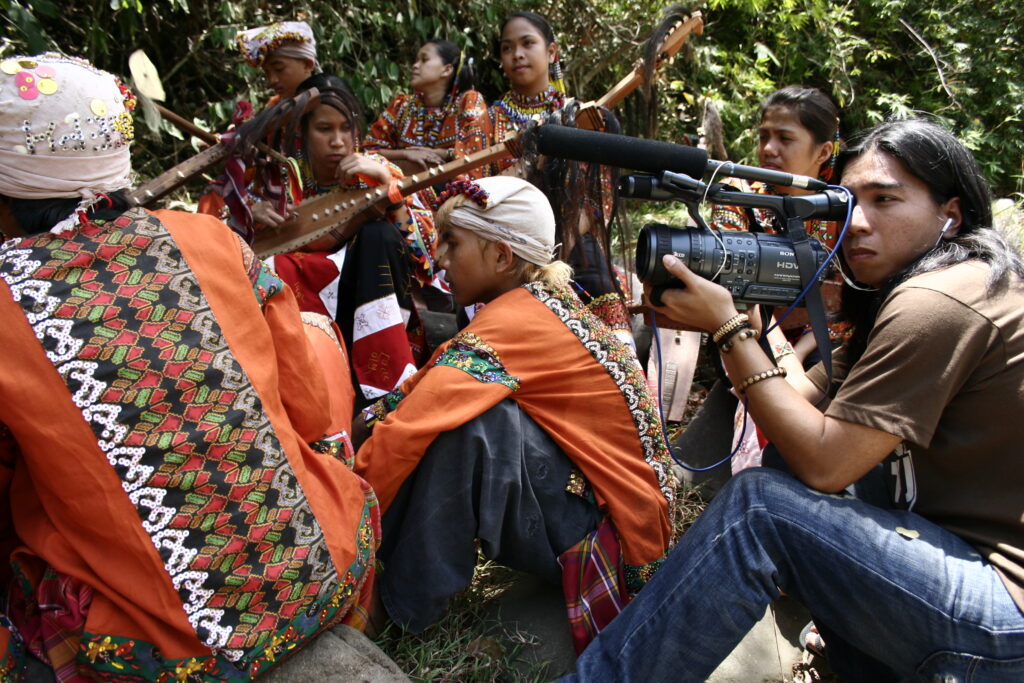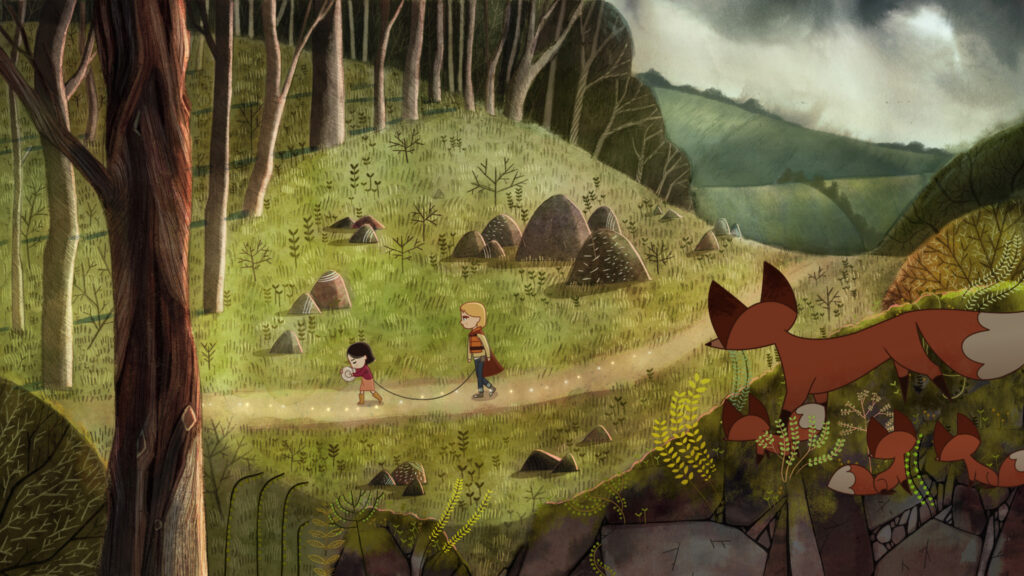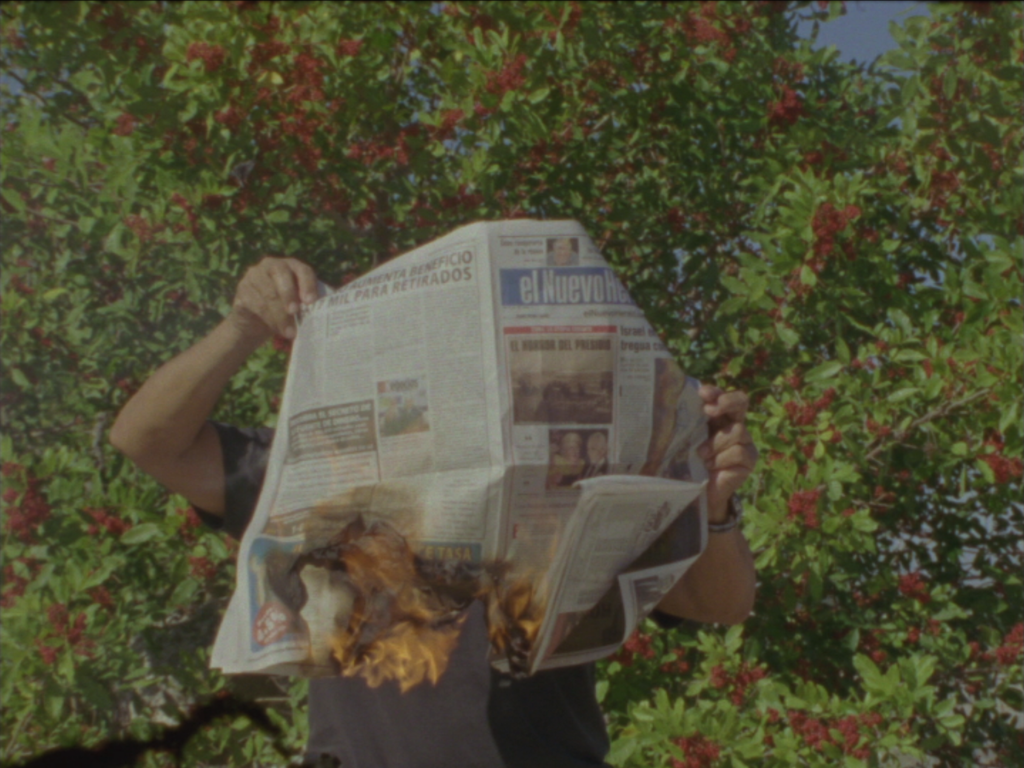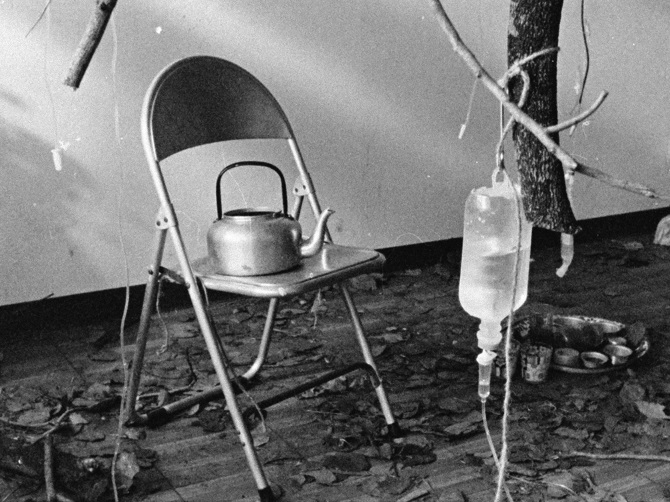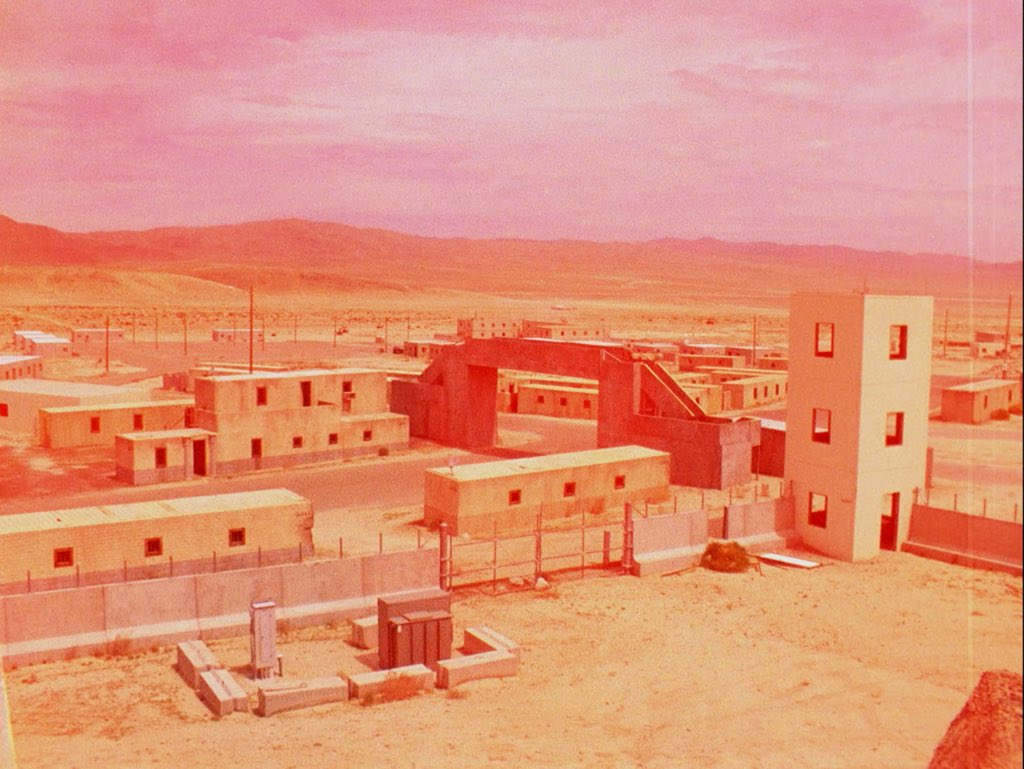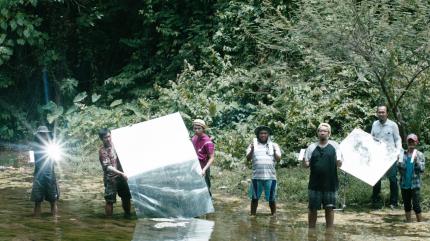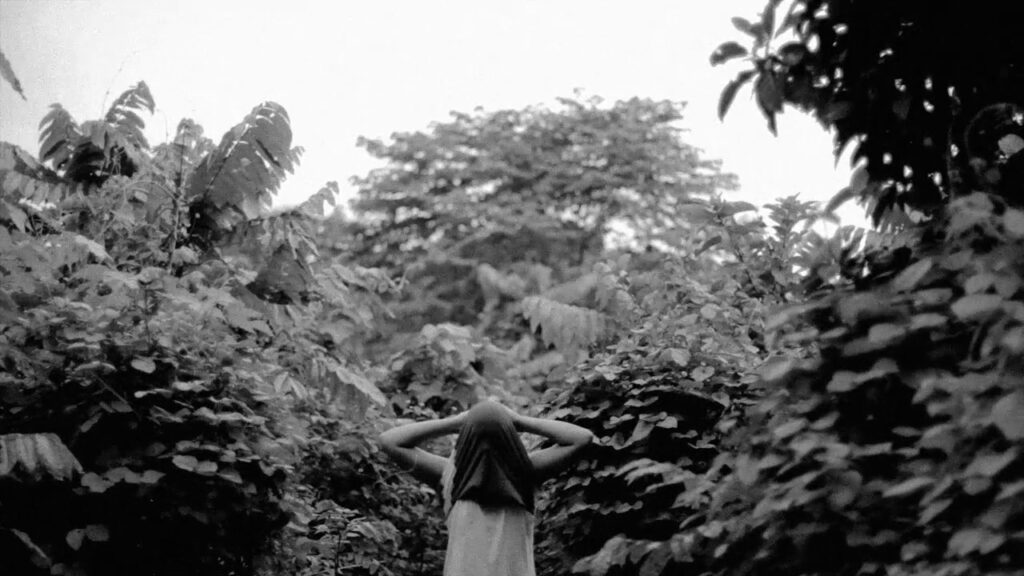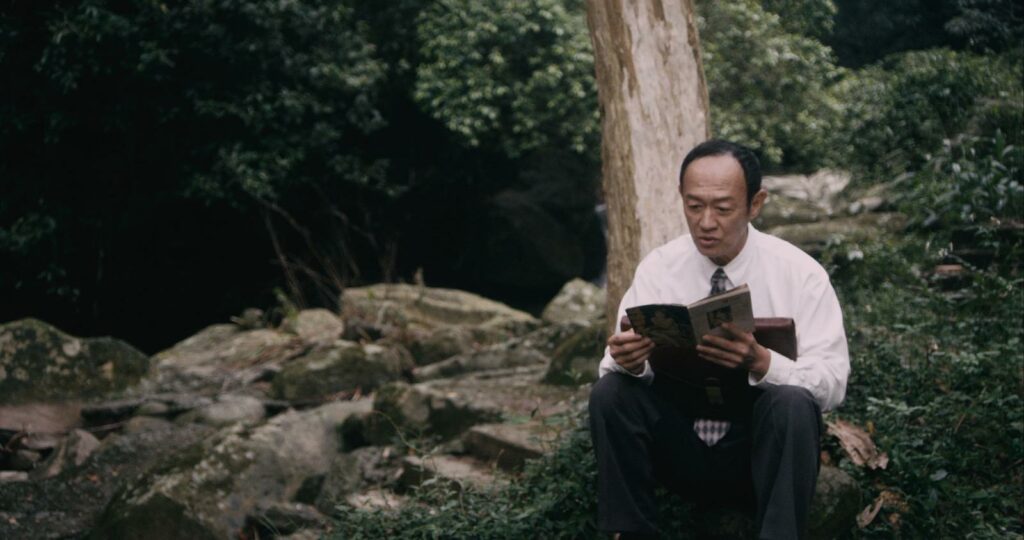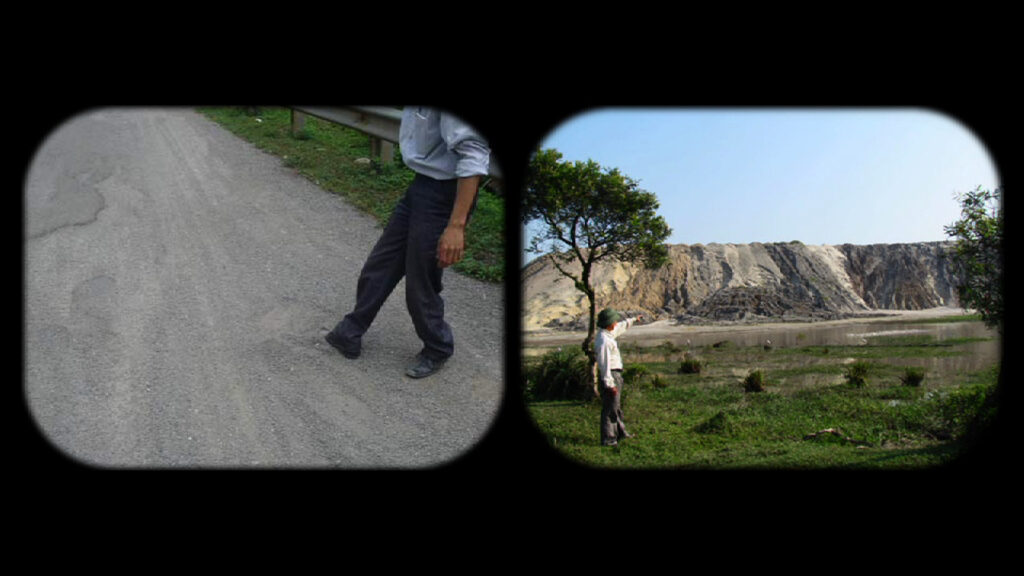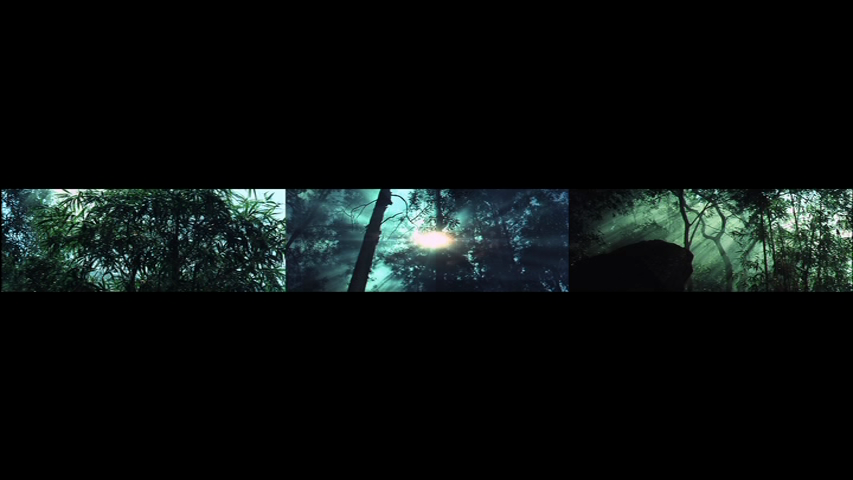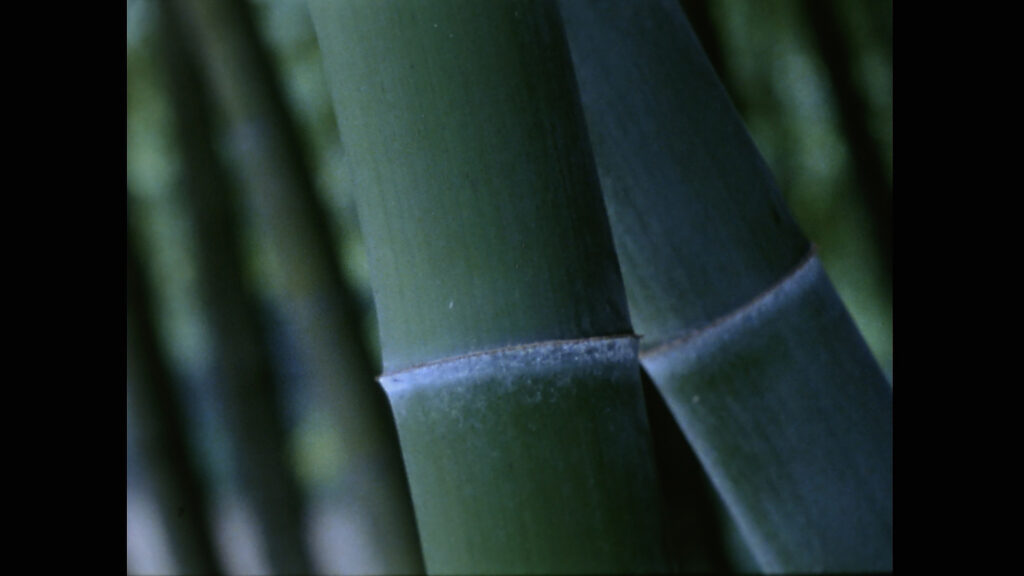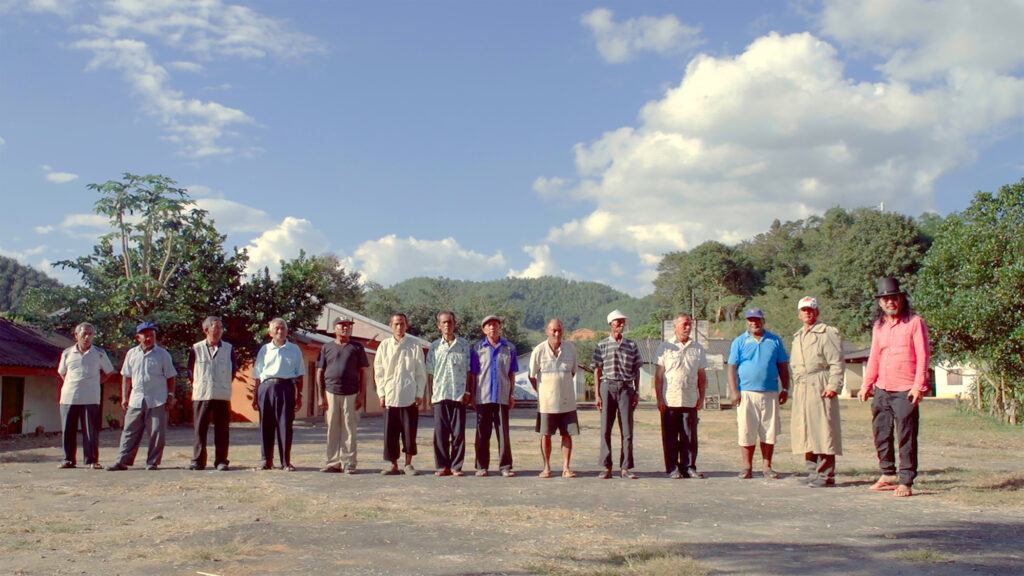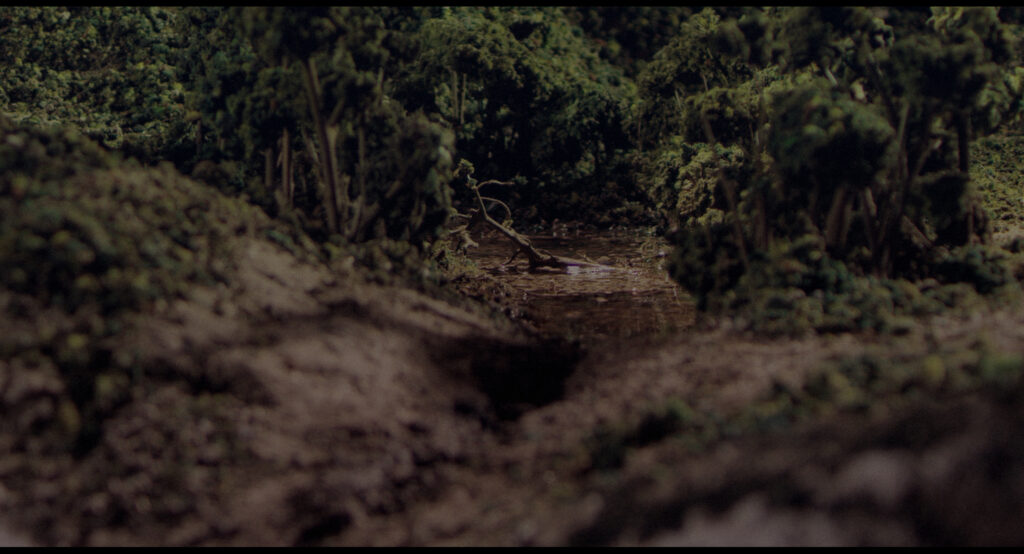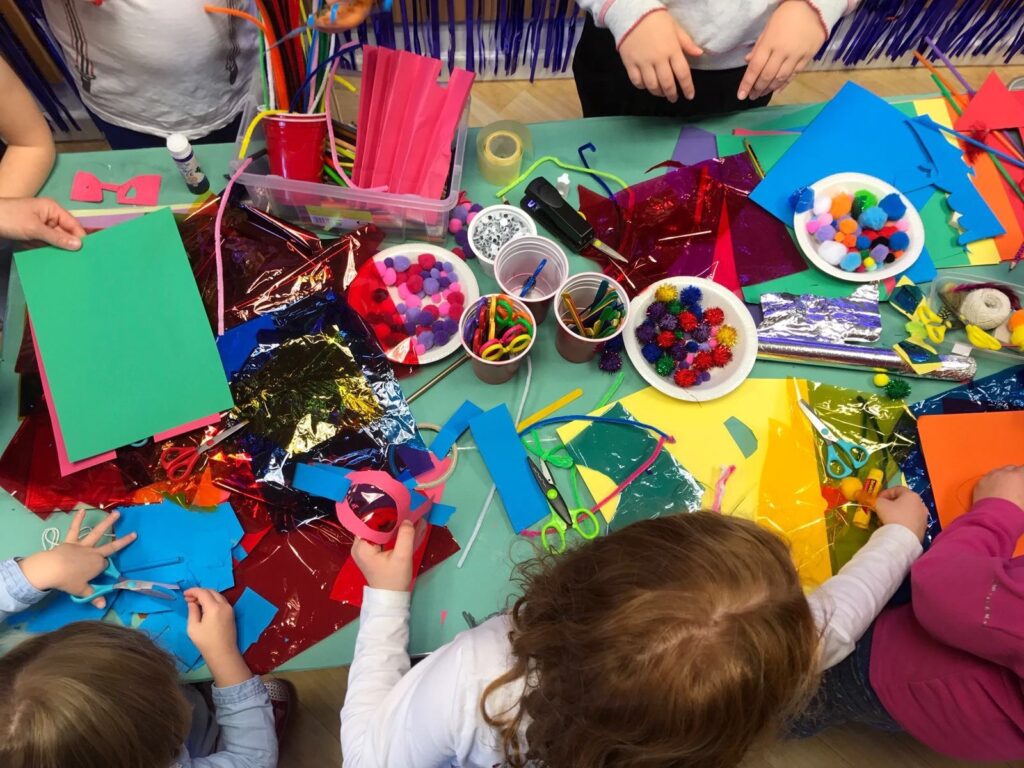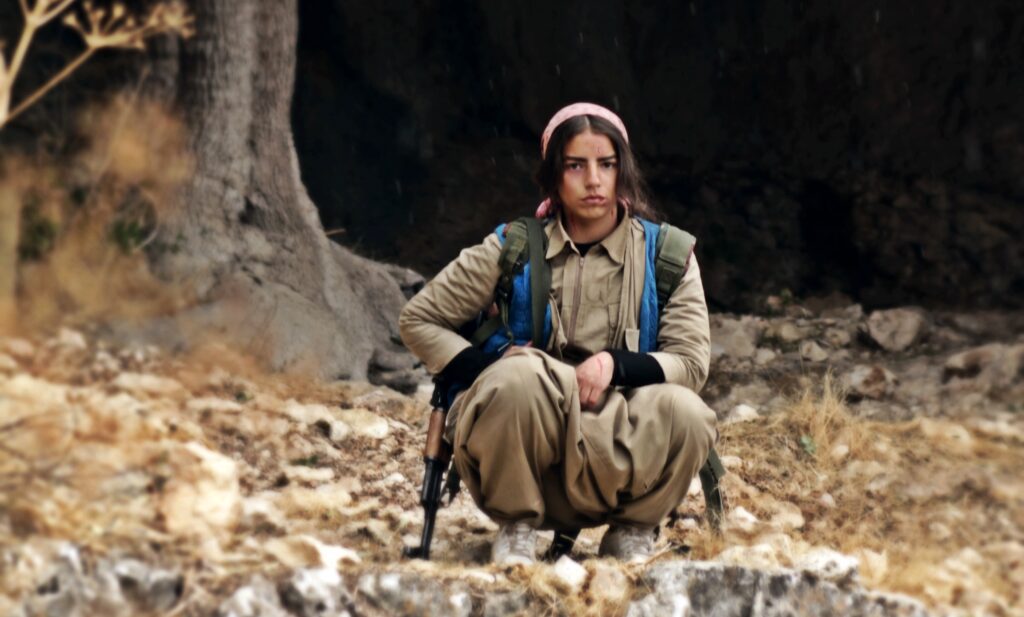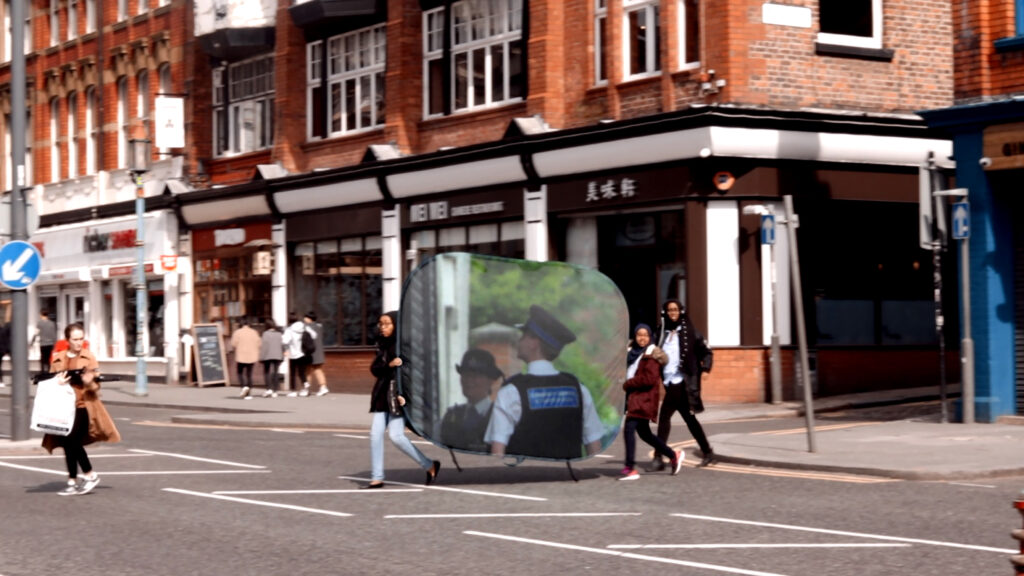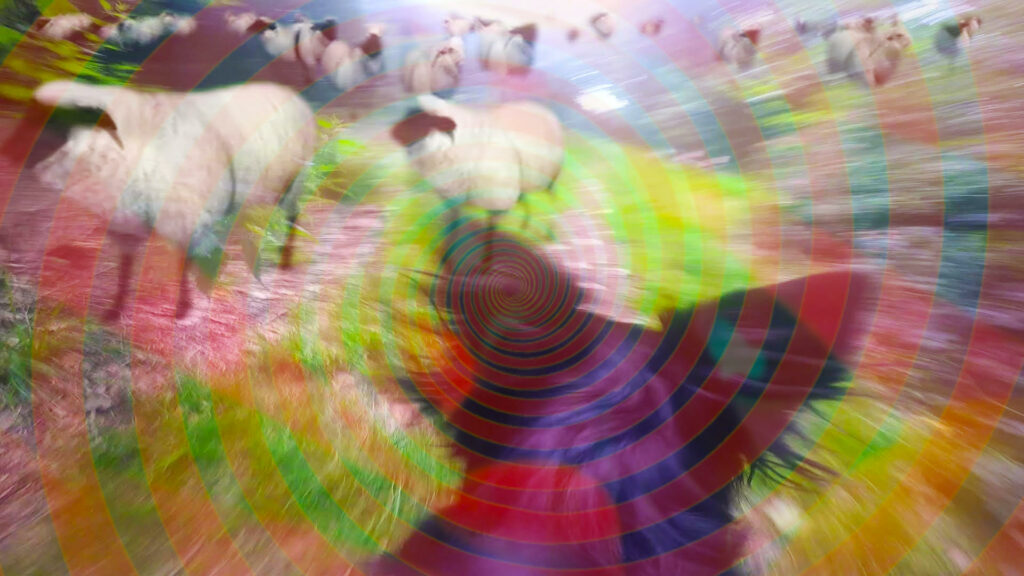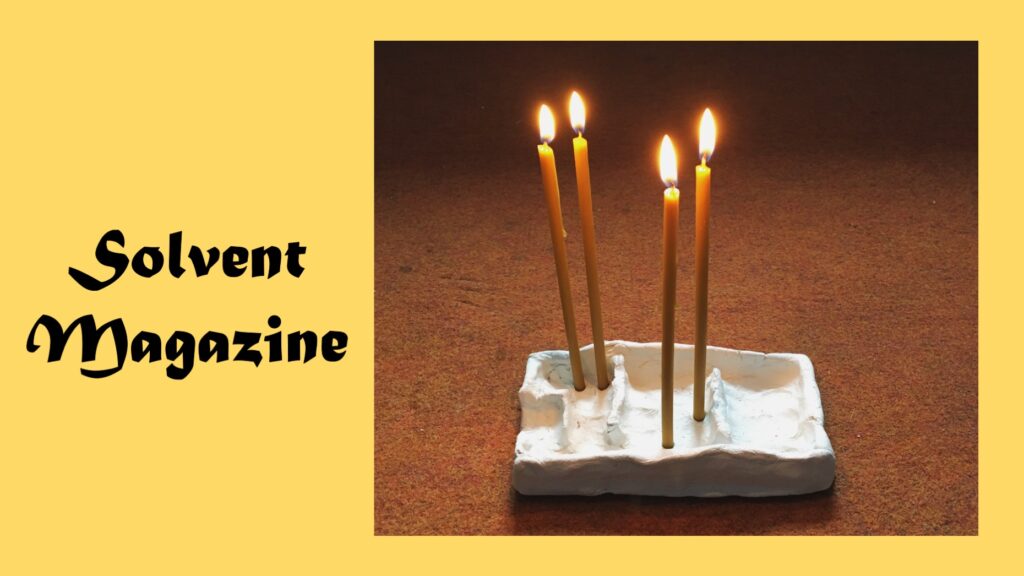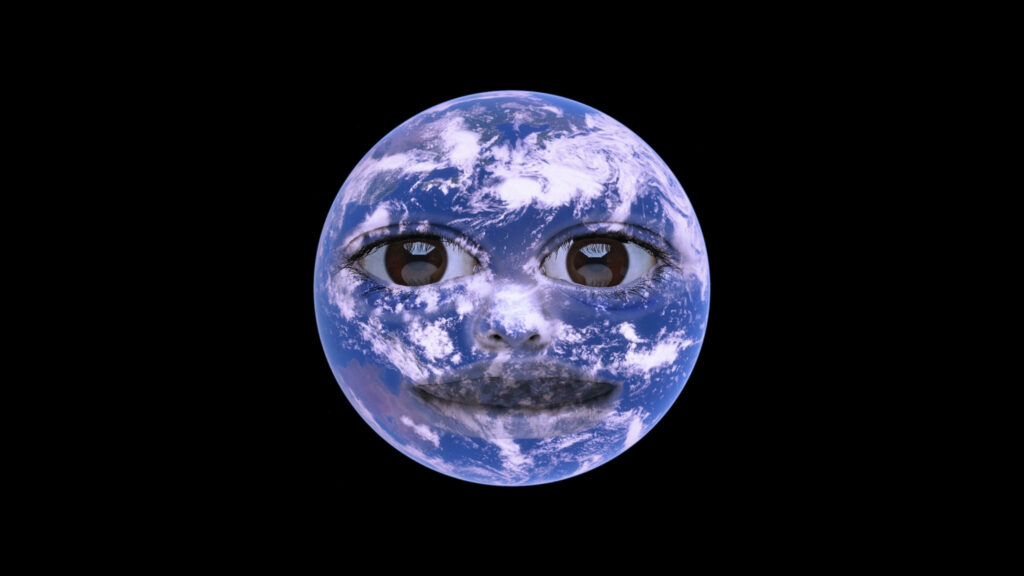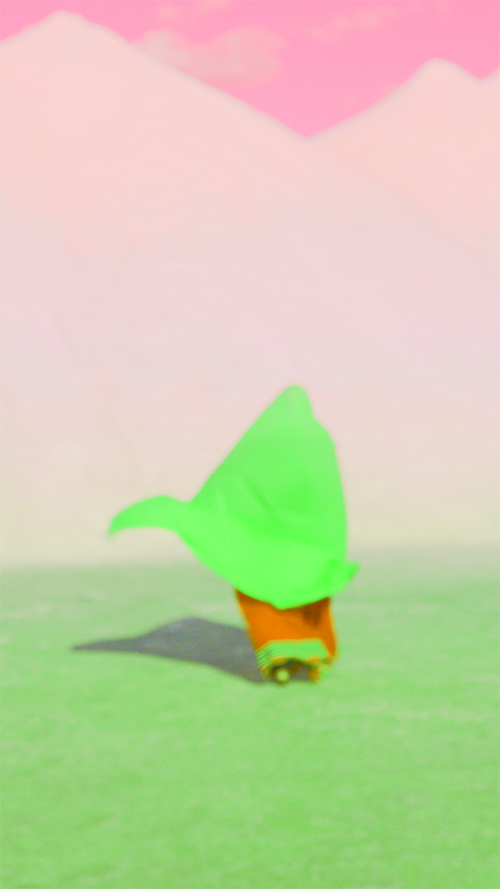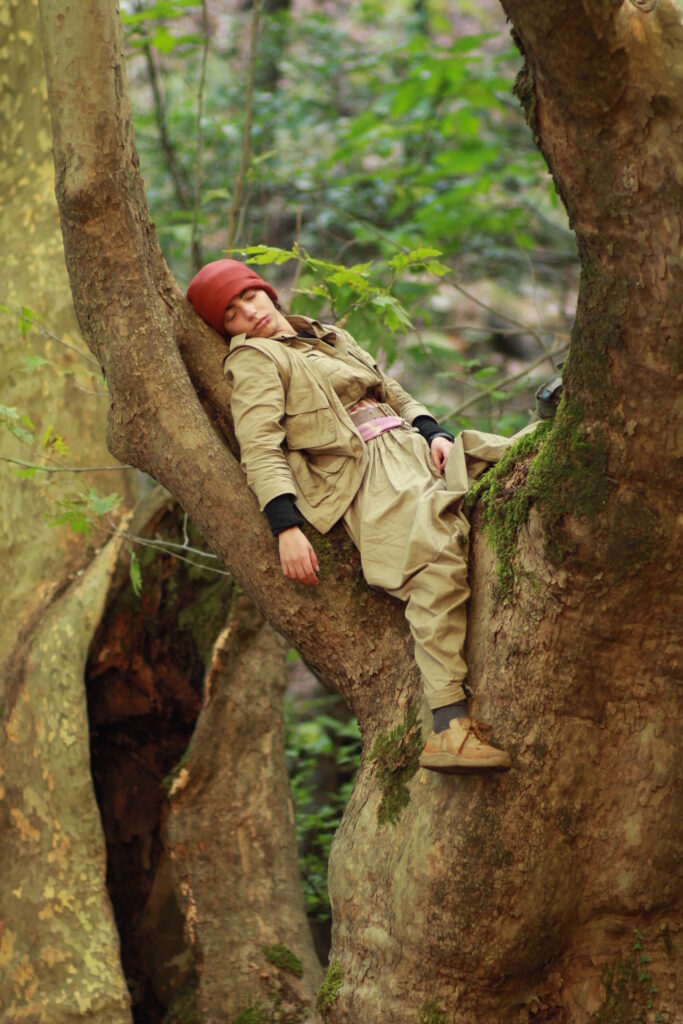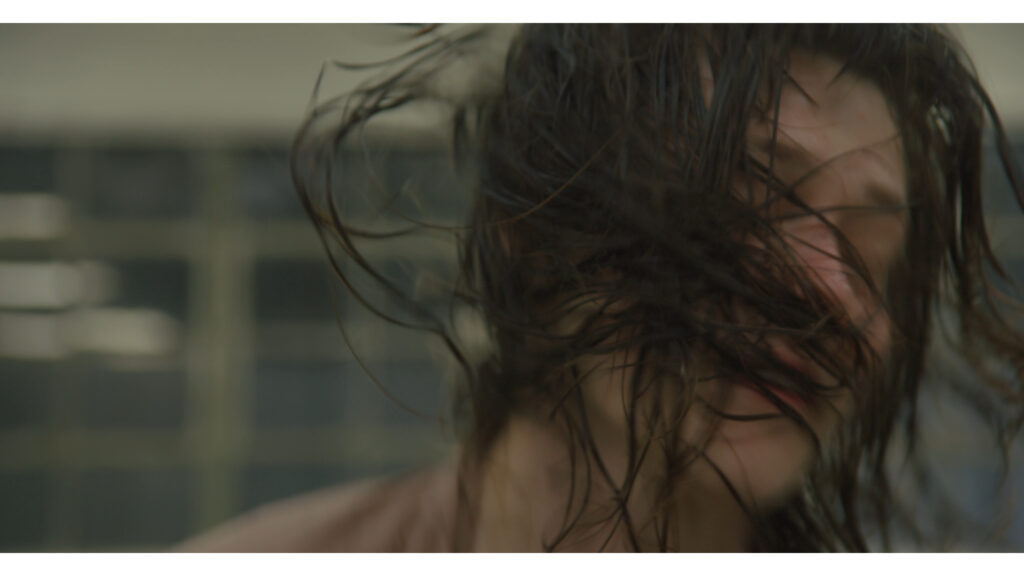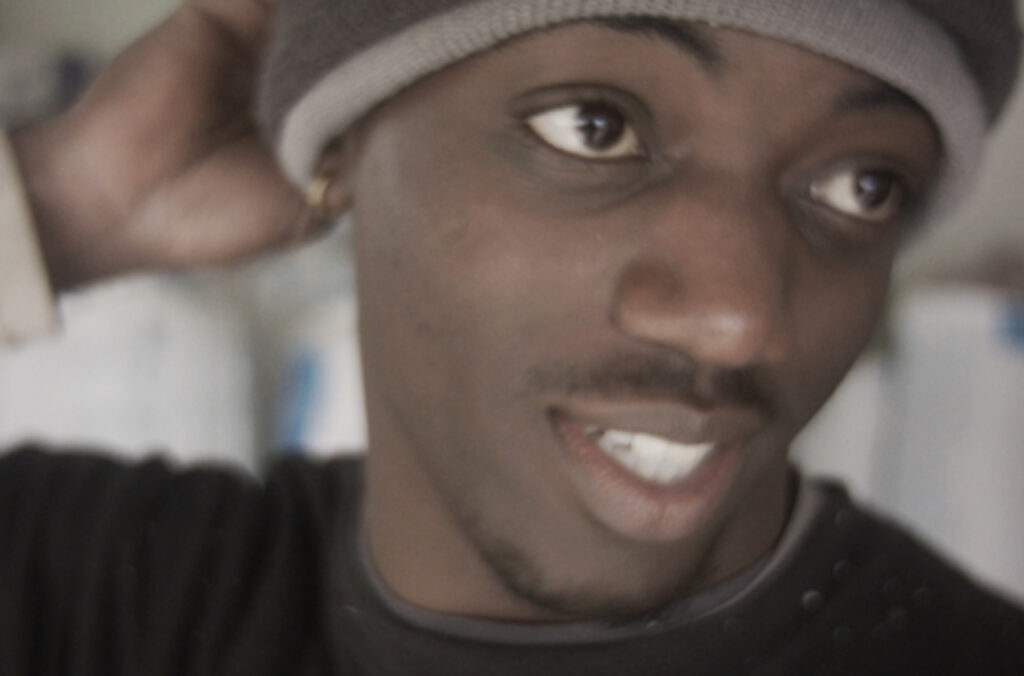Set in 1987, soon after the People Power Revolution which led to the fall of president Marcos, Nervous Translation follows eight-year-old Yael. A shy and uneasy girl, she listens endlessly to the cassette tapes recorded by her father, who has spent years away from home working in Saudi Arabia. When she hears an advertisement for a pen that will give her a ‘wonderful life’, she decides to spend all her savings on this miracle pen.
Yael’s world is small and tender—she likes to play cooking on her mini stove—but the real world comes knocking: a typhoon approaches the Philippines. Giving a voice to this quiet girl in a perceptive, playful film full of jump cuts, sensitive sound design, ’80s music and even an odd surrealist intermezzo, Seno empathetically captures the innocence and uncertainty of a child who doesn’t yet understand the world, although she is surrounded by it.
Introduction by filmmaker Shireen Seno
UK premiere of Nervous Translation presented jointly by BFMAF and Tate Modern
The film will be preceded by the 2018 Berwick New Cinema award presentation
Run Time
A couple escape from their families and flee deep into the jungle. At nightfall, a song illustrates the innocence of their love and their search for happiness. Palme d’Or winning filmmaker Apitchatpong Weerasethakul invited fellow Thai filmmaker Pimpaka Towira to shoot a 35mm film in the forest while he observed the production though his digital camera. While Worldly Desires is dedicated to Weerasethakul’s memories of filmmaking in the jungle from 2001–05, it is also a story of forbidden love and desire, loaded with poetry, metaphor and mystery.
Run Time
Artist, writer and curator Morgan Quaintance presents his new film Another Decade, alongside a programme of material that extends and details themes within it.
Another Decade combines archive and found footage from the 1990s with recently shot 16mm film and standard definition video. Starting from testimonies and statements made by artists and art historians during the 1994 INIVA conference ‘Towards a New Internationalism’, Another Decade ranges across diverse cultural territory, and is propelled by a sense that very little socio- cultural or institutional change has taken place in the United Kingdom since that time.
The dynamic tension explored in the work is between, on the one hand, art world actors speaking a truth to institutional power and, on the other, lived realities of London’s multiracial citizenry. Those who necessarily inhabit a centre of otherness.
These are positions that are drawn out in the selection of films that make up the accompanying programme. A suite of new works made by Quaintance—including a rumination on British Empire and the English countryside set to the words of Jimmie Durham, as well as a work examining the artist’s experiences growing up in South London—will be accompanied by several clips from a video pen pal exchange project facilitated by artist Russell Newell in 1994–95. Exchanged between kids in London and Los Angeles, the videos show participants talking about their neighbourhoods, giving tours of their schools, and discussings aspects of their culture like music, fashion and gangs.
While recent attention paid to the ’90s casts a largely apolitical view over the decade, this range of films seek to exhume evidence buried in the shallow grave of cultural amnesia of another, more political, more iconoclastic and more confrontational decade.
Run Time
Naomi Kawase is amongst the most renowned of contemporary Japanese filmmakers and Genpin is a sensually shot documentary revelation. In the heart of a dense Okazaki city forest, we follow Dr. Tadashi Yoshimura, midwives and expectant mothers during four seasons at a natural childbirth clinic. Employing centuries old practices that often run askew from contemporary medicine, Kawase’s tender film oscillates between the intimate moments of joy, pain and doubt in honouring this way of life.
The title Genpin recalls the words of the Chinese philosopher Lao Tzu: ‘The valley spirit never dies / It is named the mysterious woman (genpin).’ In the film, Yoshimura reflects on the relationship between childbirth and death, and observes—more as a human being than a doctor—that to deny death is to deny life. Life born into this world, life that ends at the moment of birth, life that ends before birth. Lives do not cease as a solitary life but are carried on by the species, and continue. Through the flux of the Japanese seasons, Naomi Kawase entered the circle of the women giving birth at the Yoshimura Clinic and the world of Dr. Yoshimura—who has spent 40 years on the path of natural childbirth—and wove the footage she shot with her own 16mm camera into this film.
Run Time
Translation, transformation and transition: the final 2018 Berwick New Cinema competition programme focuses on shifting perspectives, the tension between the real and the virtual, and the relationship between mental and physical landscapes.
Q&A with filmmakers Tako Taal & Callum Hill.
Run Time
Some Interviews on Personal Matters is one of the first feminist films of Soviet cinema and comes to Berwick freshly restored by Arsenal Berlin. Lana Gogoberidze’s narrative follows Sofiko, a journalist who interviews a wide range of women about their lives, desires and domestic labour. Laying bare the connections between the private and political in almost documentary style, the film focuses on the struggle between Sofiko’s independence and her obligations towards her own family. A powerful performance by Sofiko Chiaureli—who viewers will recognize from her iconic role in Sergei Parajanov’s The Colour of Pomegranates—is at the center of what is a quite personal film for Lana Gogoberidze, one of three generations of Georgian women filmmakers from her mother Nutsa Gogoberidze (an associate of Eisenstein, Dovzhenko and Mikhail Kalatozov in the 1930s) to her daughter Salome Alexi.
Run Time
‘Lukas, in the middle of the film, the actress will pay a visit. You’ll fall in love with her. And you’ll understand your father. I’ll become your memory. I haven’t shown you the middle yet’. Thus begins John Torres’s latest dream of a documentary, a highly experimental, gloriously free-form coming-of-age story. Shortly after the arrival of a film crew that throws his tiny, usually quiet village into a frenzy of commotion, Lukas’s father, Mang Basilio, announces that he is a ‘tikbalang’, the half-horse, half-man of Filipino folklore. When Mang Basilio disappears, the awkward, baffled Lukas sets out on a journey of self-discovery that will include a ‘river of forgetting’, invisible voices and a hallucinatory blurring of reality and fantasy. Torres has already carved out an idiosyncratic niche for himself in the thriving world of documentary-fiction hybrids, and this is his most personal and expansive work to date. — Film Society of Lincoln Center
Q&A with filmmaker John Torres
Run Time
Collect a free ticket from the Maltings Box Office, the starting point for an informal exhibitions walking tour (1.5 – 2 hours approx) with the Festival team.
Run Time
Sophia Al-Maria discusses her diverse practice—particularly the series of moving image works shown in the ‘Temporal Vertigo’ retrospective screening and The Magical State exhibition in The Magazine—with BFMAF associate programmer Herb Shellenberger and 2018 seminar leader Taylor Le Melle. Working at the intersection of cinema and contemporary art, Al-Maria’s practice occupies a singular space within the field of artists’ moving image.
Run Time
The dirty beats and lo-fi stream of consciousness father and daughter duo Yeah You! (Elvin Brandhi & Mykl Jaxn) meet the left handed melodic messthetics of Glasgow’s finest: Vital Idles. Plus karaoke. All welcome!
Frederic is a maternally-dominated young man who by chance is awakened to a dormant childhood memory while attending the launch party of a new perfume. A chateau pictured in the perfume’s poster reminds him of a night, long ago, when he was lost and a beautiful young woman came out of nowhere to protect him through the night. Later, the woman—unaged—magically appears and beckons to him, and Frederic finds his way back to the chateau and to her, uncovering some dark secrets about his family’s past along the way.
Lips of Blood was French horror-erotica auteur Jean Rollin’s favorite of his own films and it contains many of his signature elements: crumbling seaside ruins, bloodthirsty vampires, poetically haunting cinematography and suspenseful intrigue. Of all his films, it perhaps best transcends his tendencies toward the poetical and arcane, while remaining at the same time true to his most personal, recurring obsessions: childhood, nostalgia, lost love, romantic quests, the cinema, obsolescence. Aided by a young Jean-François Robin, whose later talents as a cinematographer would spice up films in the 1980s by Jacques Demy and Andrzej Żuławski, as well as the Cinéma du look classic Betty Blue, Lips of Blood is one of Rollin’s most beautiful works.
Selected by Artist in Profile Sophia-Al Maria, who will introduce the film
Run Time
Berwick Film & Media Arts Festival presents the premiere of Enceindre, a new commission and first collaboration between artist filmmaker Luke Fowler and acclaimed sound recordist Chris Watson. Enceindre is a study in film and sound of two 16th century fortified cities: Berwick in the North-East of England and Pamplona in the Navarre region of the North of Spain.
Run Time
BFMAF presents the first UK screening in 40 years of this innovative New German Cinema highlight. The Dumpster Kid (Kristine de Loup), born from a trash can, finds her way through the world, discovering hilarity, ecstasy, cruelty, capitalism and patriarchy along the way. Always wearing a red dress, red tights and Louise Brooks-style black bob, The Dumpster Kid steals, has sex, joins a sideshow and meets Al Capone and d’Artagnan. She is always in danger, yet immortal.
This radical film was never meant to be shown in a cinema; instead, Reitz and Stöckl showed it in pubs. The audience members were encouraged to imbibe heartily and create their own sequence of the film’s 22 episodes. This special ‘pub cinema’ screening will be recreated for this event, an exceedingly rare cinematic treat that you won’t soon forget.
Supported by Goethe-Institut, London
Run Time
Somewhere in Burma, a forest rich in amber is controlled by the Kachin Independence Army. For most of the inhabitants, amber mining is their only means of subsistence. Working in harsh conditions under constant threat from the government army, these forest villagers live in fear and despair, with a future as dark as the end of the mining tunnel. Blood Amber is a richly cinematic documentary experience.
Run Time
‘Temporal Vertigo’ is a wide-ranging selection of moving image work made by artist, writer and filmmaker Sophia Al-Maria over the last seven years. As schizophrenic in form as it is in chronology, the ten works shown move from essay film to music video, documentary, narrative, performance and all points in between. Included are the two part ‘Gulf Futurism’ essay film The Future Was Desert, which images the desert as a place outside of time; enigmatic science-fiction/documentary hybrid Mothership; and two music videos for Fatima Al Qadiri. This program represents the first retrospective screening of Al-Maria’s formally rigorous and beautifully cinematic work, providing a view of visual and thematic cross-contaminations between many different projects.
Q&A with filmmaker Sophia Al-Maria
Run Time
Join us for the first draft of Islanders, a new collaborative work combining live performance with moving image sequences. The work builds on strategies of co-authorship and ways to work together developed over the course of the 2-year project ‘Giles Bailey & CIRCA Projects’, which previously led to the live events ‘World is Sudden: Part I’ and ‘Take the Credits’ at Berwick Film & Media Arts Festival’s 2016 and 2017 editions.
Through collaged fragments, the work explores the construction of island identity at a point when the UK’s relationship to other landmasses and the sea around it is in flux. By collectively expanding and re-staging historical diverse representations of islands that exist in the popular imagination, Islanders offers a collage of material to propose critical relationships to states of isolation, political fantasy and the promise of rescue.
Commissioned by CIRCA Projects in partnership with Berwick Film & Media Arts Festival, Middlesbrough Art Weekender, Tyneside Cinema and Northern Gallery of Contemporary Art
Supported using public funding by the National Lottery through Arts Council England
Run Time
Join artist Jessica Sarah Rinland and Kate Dixon, Berwick Parks Manager, for a river walk. Collect a free ticket from the Maltings Box Office, the starting point for an approximately 1 hour wildlife exploration along the River Tweed.
Run Time
Glittering and shimmering moments: the tender touch of your child; the lumbering gait of a dancer dressed in an improbable costume; the luxury of a well-earned day off work. These glances, snapshots and memories are bound together in films alternating between the mundane and fantastic.
Q&A with filmmaker Beatrice Gibson
Run Time
Join the young people and their friends in the exhibition for a Discovery Party and refreshments. All welcome.
Run Time
Artist-filmmaker Jessica Sarah Rinland presents the world premiere of her film Black Pond, a film that explores the activity within a common land in the south of England. Previously occupied by the 17th century agrarian socialists The Diggers, the land is currently inhabited by a Natural History Society whose occupations include bat and moth trapping, mycology, tree measuring and botanical walks.
After two years of filming on the land, the footage was shown to the members of the Society. Their memories and responses were recorded and subsequently used as part of the film’s narration. The film does not offer a comprehensive record of the history of humans within the area. Instead, it explores more intimately, human’s relationship with and within land and nature.
Following the film, Rinland will dissect and expose materials related to the film, detailing content from a forthcoming publication related to the film. She will stage moments from the Society’s yearly town hall meetings, discuss historical maps and laws, letters of complaint and footage she shot in the same location years before her encounter with them.
Run Time
In this seminar, Shireen Seno and John Torres will explore Los Otros’ history and the surrounding context and community of artists and filmmakers both in the Philippines and internationally. They will also discuss their working methods and strategies for production, and will be joined by Richard Bolisay, Viknesh Kobinthan and 2018 seminar leader Taylor Le Melle.
Run Time
Northern soul, R&B and club classics with DJs Carl Hudson and Michael Elliot. Free admission, all welcome.
Run Time
Linguère Ramatou returns to Colobane, a once charming village now devastated by poverty, with fabulous wealth and a promise to save her people. But tied to this promise is a deadly bargain: the lover who had betrayed a 16-year- old, pregnant Linguère, must be executed. The villagers—over time and through the hardship of daily survival—had long forgotten the incident, and they are at once confused, horrified and outraged. But soon cowardice sets in, shrouded in silence. While appearing to maintain a good moral conscience, the villagers are unable to resist the dazzling array of consumer goods that Linguère has now placed within their reach. On credit, they begin to purchase furniture and appliances—even those meant for houses without electricity!
Completed just a few years before the filmmaker’s passing, Hyenas is a cautionary tale packed with humorous, compassionate yet explosive scenes. Mambéty forges his narrative with humour and paints characters, spaces, dialogues and gestures with breath-taking images in sumptuous colours. He skilfully and playfully sways us back and forth in time, with slots of 19th century pomp followed by 20th century appliances. Desire, materialism and various modern day artefacts come to test the old values of individual dignity and group solidarity, stressing the enduring, almost mythic status of the conflict between avarice and respectability. Hyenas is nothing short of poetry in motion.
Introduced by artist and researcher Layla Gaye
Run Time
Part political satire, eco-horror and road movie, TERROR NULLIUS is a counterculture film which offers an un-writing of Australian national mythology. Using existing film footage as raw material, the project works entirely within—and against—the official archive in order to achieve a queering and othering of Australian cinema. Envisaged as ‘A Political Revenge Fable In Three Acts’, TERROR NULLIUS is a world in which minorities and animals conspire, and not-so- nice white guys finish last. Where misogynistic remarks are met with the sharp beak of a bird or the jaws of a crocodile, and girl gangs rule the highways. Within this fable, Skippy the Bush Kangaroo schools his young pal Sonny on intersectional feminism, a house is haunted by the spectre of queer Australia, the mystery of Hanging Rock is resolved and a bicentennial celebration is ravaged by flesh-eating sheep.
TERROR NULLIUS lays bare a paradoxical vision of Australia as a nation where idyllic beaches host race-riots, governments poll love-rights and the perils of the natural environment are overshadowed only by the enduring horror of Australia’s myth of ‘terra nullius’. It’s a beautiful, bloody mix of the historical and the speculative, the grindhouse and the art house. Not a definitive counter-narrative but a meticulous ramshackle of connections that delivers an open invitation to a further cultural conversation.
Run Time
Filmmaker Sky Hopinka presents a screening of his short films in conversation with Nicole Yip, Director of LUX Scotland. Based in Milwaukee, Sky Hopinka (Ho-Chunk/Pechanga) focuses on the interconnections between his indigenous homeland, language, landscapes, and identity. Anchored by both surreal perspectives and grounded realities, Hopinka’s sublime films create maps of dreams and memories, pushing against cultural and personal boundaries, creating meaning where none had existed before.
Hopinka will read from his debut publication Around the Edge of Encircling Lake (2018) and the screening will include:
Kunįkága Remembers Red Banks, Kunįkága Remembers the Welcome Song, 2014, US, 9 mins
Jáaji Approx, 2015, US, 15 mins
I’ll Remember You as You Were, Not as What You’ll Become, 2016, US, 12 mins
Dislocation Blues, 2017, US, 17 mins
Fainting Spells, 2018, US, 12 mins
Special thanks to Ruth Hodgins, Walker Art Center
Run Time
Join Katie and Chloë at the Kaleidoscope shop (59 Marygate) for a dedicated Zoetrope-making session. Learn how to make an animation film with no film or or gadgets! Suitable for ages 7 to 13. Places are free but should be booked via The Maltings. Children must be accompanied by an adult at all times.
Run Time
America has ‘liberated’ the Philippines and the islands have just been proclaimed a new republic.
Every morning, at the crack of dawn, Father and Mother stretch Julio, pulling his limbs in opposite directions. They make him drink a concoction made from the liver of codfish, believed to stimulate growth in children. He stands in the blazing heat of the sun.
The family swells in size to six children. Father hunts for food while Mother tends to domestic duties, leaving Julio and his siblings alone, exposed to their lush natural environs. Soon enough, the youngest two are taken away and distributed amongst the two aunts without offspring of their own.
Big Boy chronicles the growth of a family, the myths of progress that consume them and the violence not just in war and colonization, but also that which is inherent in coming into being—for a boy, a man and a nation.
Q&A with filmmaker Shireen Seno
Run Time
I wouldn’t want to belong to any club that would have me as a member. That includes Chauvin-ists; children who disturb corpses; frightened men living in a matriarchal society; or a film crew consisting of a slime robot, talking mandrill and lesbian couple whose relationship crumbles under the glow of bisexual lighting.
Q&A with filmmakers Hardeep Pandhal & Benjamin Crotty
Run Time
Berwick Visual Arts and BFMAF Artist in Residence Lucy Clout discusses Solvent Magazine, her new body of work produced in Berwick and exhibited in The Gymnasium, with Cubitt Curatorial Fellow and Cinenova working group member Louise Shelley and 2018 seminar leader Taylor Le Melle.
Run Time
Empty Metal takes place in a world similar to ours—one of mass surveillance, pervasive policing, and increasing individual apathy. The lives of several people, each inhabiting poles of American social and political consciousness, weave together as each attempts to achieve some kind of forward motion, sometimes in contradiction, and always under the eye of more controlling powers.
A taut thriller, the film reveals a political fantasy, an alternative reality whose characters teeter on the dull knife edge that is contemporary American politics, at the same time refusing to fall right of left. Instead, they lash out from the soul, under the radar, in an attempt to achieve what their mainstream predecessors have yet to accomplish.
“Filled with energy, rage, and the smallest measure of hope, Empty Metal is a new kind of political film for these extraordinary times.” —Film Society of Lincoln Center
Q&A with filmmakers Adam Khalil & Bayley Sweitzer
Run Time
Join Berwick Visual Arts Artist in Residence Lucy Clout to celebrate the opening of her BFMAF 2018 exhibition, Solvent Magazine. Refreshments and merriment aplenty.
Run Time
Years When I Was a Child Outside is a meta-film following Torres’ perspective as the son of best- selling self-help author Rodolfo Torres, whose instructional books and tapes made in early 1980s Philippines aimed to ‘help raise brighter children’. Upon learning that his father bore illegitimate children, the narrator decides to run away. The film is not only a chronicle of stories through foreign regions but also a probing letter from outside circles; an honest account of illegitimate views from uneven terrain; and a narrative-driven exploration of the nooks and peripheries of the body, geography and weather. As the journey progresses, the film increasingly traverses the countries of revelation, film, and heart—to where all journeys are meant to end with.
Q&A with filmmaker John Torres
Run Time
Join Katie and Chloë at the Kaleidoscope shop (59 Marygate) at 15:30 to watch Song of the Sea, an enchanting Irish animation that tells the story of Ben and his little sister Saoirse. Suitable for childrenages 5+ and popcorn provided.Places are free but should be booked via The Maltings.
Run Time
Shine bright. Portraits of a nomadic musician and an animatedly-perverse single father butt up against a simulacrum of the Middle East and a tactile inquiry into the natural world. Taken together, expressions of personal, political, spiritual, mystical and sexual agency provide powerful statements of either resistance to or complicity in an increasingly commodified world.
Run Time
Sensory, colourful and widescreen, the forest is already naturally cinematic.
Since the turn of this century, the forest has fascinated a new generation of global art filmmakers who have chosen the forest as a space for their creative exploration. ‘Screening the Forest’ takes nature as its point of departure by weaving together cinematic forests from India, Japan, Singapore, South Korea, Taiwan, Thailand, Vietnam and the Philippines. In some cases, the forest may even refer to nothing but a world construed as its own territory.
Like the real forest, where many genuses of trees coexist, the programme emphasizes that cinema is constructed not only culturally and aesthetically, but also ecologically or even animistically. As new strategies and interpretations of the forest emerge from a variety of Asian filmmakers, new trees can be sowed within our own imagination.
Q&A with curator Dr. Graiwoot Chulphongsathorn
Run Time
Kaleidoscope is a bean-bag cinema and family friendly art space. There is a rolling programme of animated films from Cinekid Festival Amsterdam. Hands-on making activities will be led by artists Katie Chappell and Chloë Smith.
A conversation between a therapist and their client unfolds as a yellow ball swings back and forth. Replicating simple animations of online EMDR videos used to treat Post-Traumatic Stress Disorder, Consensual Healing feeds Octavia Butler’s short story ‘Bloodchild’ through scripted therapeutic protocols, destabilising relations between coercion and consent, form and content, trauma and fiction.
Music by Juliana Huxtable; sound by Marco Gomez
Between the dizzying hallucinatory landscapes and circular images of a lens or porthole, Hopinka takes us to a world of dreams, spirits and myths, revealing the story of Xąwįska, the Indian Pipe Plant used by the Ho-Chunk to revive those who have fainted. With abstracted and inverted images Hopinka moves from an editing station into the landscape, illuminating the sense of losing oneself, of fear and renewal. —Ruth Hodgins
An existential thriller with touches of magic realism, Jîn follows 17-year-old Jîn, a Red Riding Hood with a fierce survival instinct. She is a freedom fighter who flees her armed organisation for reasons unknown. Jîn finds herself battling bravely through dark forests, spending solitary days in the mountains, and ultimately heading towards a city where her future is still unclear. Symbolising the complex and heated conflict between military forces and Kurdish guerrillas, the film contemplates the effect this military conflict has on the forest and mountains, including their inhabitants: animals, trees and the ecosystem enfolding them all, which doesn’t have the ability to fight back.
Introduced by Dr Graiwoot Chulphongsathorn
This special screening of Jîn is kindly supported by Berwick Film Society
Run Time
How Does an Invisible Boy Disappear? emerges from a nine-month collaboration with Liverpool Black Women Filmmakers, a new women’s film collective made up of young women from a Somali & Pakistani background. The film documents the group as they work together to create a thriller focusing on a teenage girl’s attempt to find a missing local boy. Comprised of candid footage captured during the workshop process, behind the scenes filming and archive footage of anti-racist organising in the aftermath of the Toxteth race riots, the film questions how modes of representation and societal structures are gendered and racialised.
Commissioned by Liverpool Biennial and supported by Tenderpixel, London
of Violence uses the structure of close-up pillow talk and casual camerawork to engage a dog in intimate digressions. The dog becomes an involuntary participant in human impositions—emotional, physical, linguistic and political.
Co-commissioned by Film London and Channel 4 for Random Acts
An analogue foray into a digital world.
Working with Newcastle-based moving image collective Film Bee, 15 young people from Berwick Youth Project have used collective reflection and DIY problem solving to create a series of provocations and installations about reality in a digitalised world, and how the value of images has changed with shifts in technology, particularly social media.
Berwick Youth Project provides youth clubs and bespoke activities to engage and support young people aged 13 to 18. The hub of all this activity is located at The Beehive, a purpose built youth facility. The moving image art work was made during a series of evening and summer holiday participatory sessions in collaboration with artists Mat, Christo and Leah from Film Bee.
The young people also took a trip to Tate Modern in London during the summer holidays to meet the ARTIST ROOMS team, see work by artists Jenny Holzer, Joan Jonas and Pablo Picasso, helping to inform the work they have produced.
In their own words:
‘It’s really boring to be a teenager in Berwick and this project gave us the opportunity to try something totally different and learn about art in a new and interesting way. Working with the artists was really cool and we hope lots of people young and older will come and see our installation.’
The Hurt Goes On was produced and created as part of ARTIST ROOMS Learning Programme and inspired by the work of artist Douglas Gordon, presented by Berwick Visual Arts at the Gymnasium Gallery in summer 2018
The ARTIST ROOMS programme is delivered by the National Galleries of Scotland and Tate in partnership with Ferens Art Gallery until 2019, supported using public funding by the National Lottery through Arts Council England, by Art Fund and by the National Lottery through Creative Scotland
Lucy Clout presents a new body of work titled Solvent Magazine, including sculptural and video pieces made during her six-month residency with Berwick Visual Arts and BFMAF. An assemblage of parts that brings together research around close readings of bodies— diagnostic narratives, pleasure and ambiguity are used as ways to think about knowledge, evidence and queer reproduction.
Part-waiting room, part-publishing house, Solvent Magazine presents: a £23.00 USB microscope camera, the story of a temp’s discretion, a new design for privacy screen glass which mimics the saliva of a person with secure attachment style, two piss coloured Perspex doors and a layer of plastic to keep out distractions.
Agnieszka Polska’s unsettling perspective on humanity takes the form of an animated child-faced sun with melancholy eyes. Digitally sourced images paint a frantic image of a crumbling world. From a distance, the sun jokes about environmental issues and comments on the tumultuous times in which the world finds itself.
The film borrows its title from a poem by Polish poet of the realist/positivist style Maria Konopnicka (1842–1910). The poem ‘What the sun has seen’ recounts in a childish style the quotidian, peaceful rural activities and happy family life of the nation in the countryside, as observed by the sun on its daily journey across the sky. Polska offers her own dark, ironic version of the poem, dealing with contamination by information (information waste) and the role of the ‘helpless observer’ who, like the ‘Angel of History’ in the well-known adage by Walter Benjamin, can only look at the debris piled by lived time without being able to intervene.
Shot in Colombia, The Magical State depicts the possession of a Wayuu woman by a 40 million year old oil demon. Framed as an interrogation, an off-screen male voice challenges the woman, who gazes back directly into the viewer’s eyes, placing a curse on ‘man’, the species who have woken it from geological time. The violence of natural resource extraction—and the resulting violation of land rights—are reflected in the demon’s iridescent-coloured rage and stroboscopic movements.
Secondary School Screening and Curator’s Talk Thursday 20 September 2018, 10:00 (Years 10 +)
Secondary Schools are invited to bring students to watch a dedicated screening of Jîn, introduced by Dr. Graiwoot Chulphongsathorn. An existential thriller with touches of magic realism, the film follows 17-year-old Jîn, a Red Riding Hood with a fierce survival instinct.
To bring your group, please contact val@bfmaf.org. Optional visit to installation trail.
Run Time
Bathing explores themes of contamination, cleanliness, and debility through performance and dance. It is an adaptation of a performance Staff developed that features a solo performer moving in and out of a shallow basin of water. Between the performer’s movements, the video intersperses images of oil, spit, fluid landscapes, and U.S. border patrol, with flashes of a dog lost to a blissful state of chaos.
The work draws on Staff’s research into the classical figure of the bather, chemical effects, drunken revelry, and the spiritello figures that commonly adorn European fountains. The performer’s continuous actions and gestures eventually lead to overexertion of the body. A fluid cross-contamination between substance, performer, and image occurs, bringing to mind the ways in which bodies absorb and release chemicals, hormones, and other agents—a means of survival for some and potentially lethal for others.
The video embraces feelings of anxiety induced by stagnant water and its pollution, while expressing ambivalence about the supposed opposition between inebriation and good health, suggesting that states of intoxication may be compared to a queer mode of being. However, while offering the toxic as a possible source of liberation from conservative notions of well-being and capacity, Bathing also asks us to consider the inherent privilege in celebrating states of disorder and from whom those privileges are commonly withheld.


